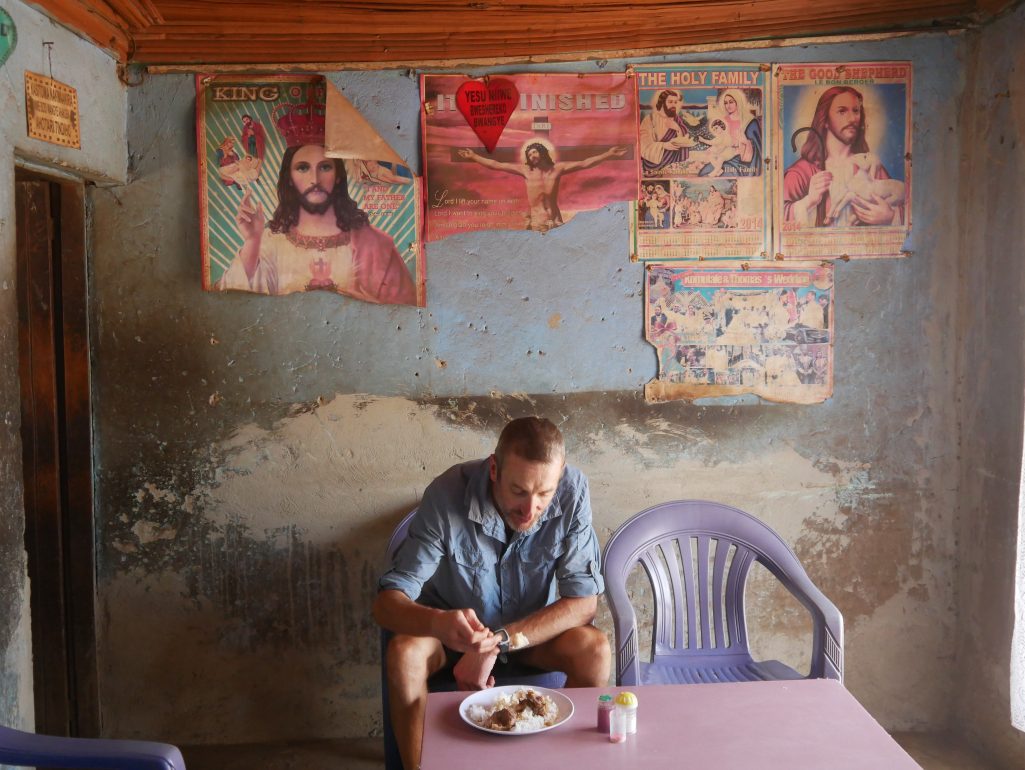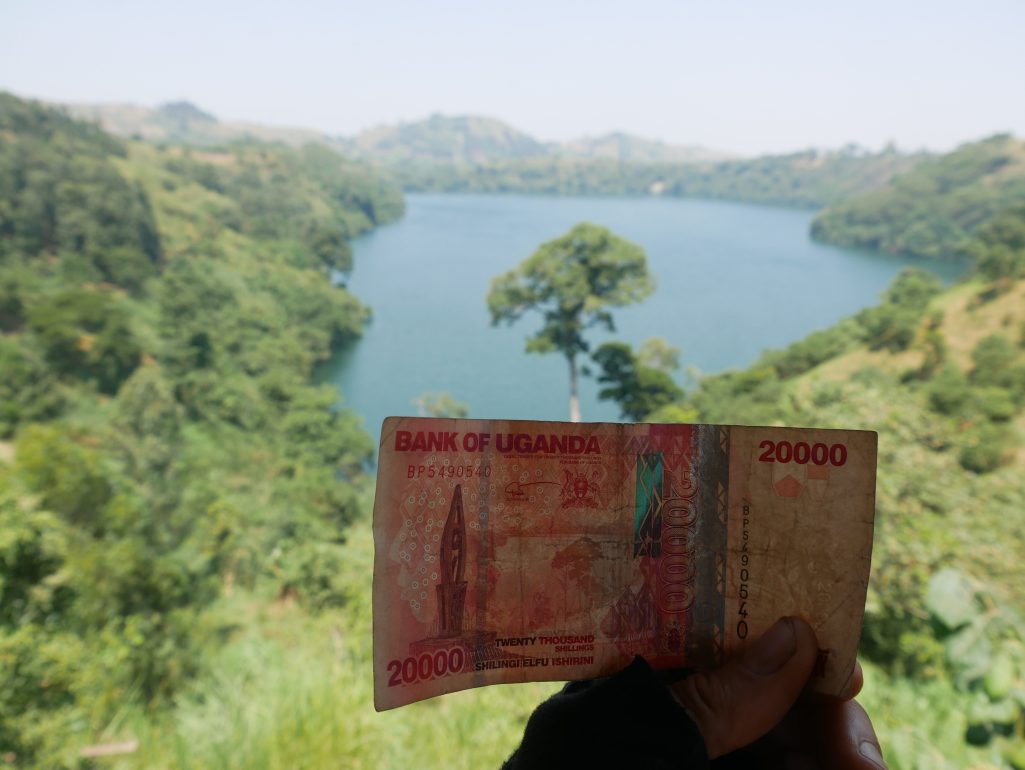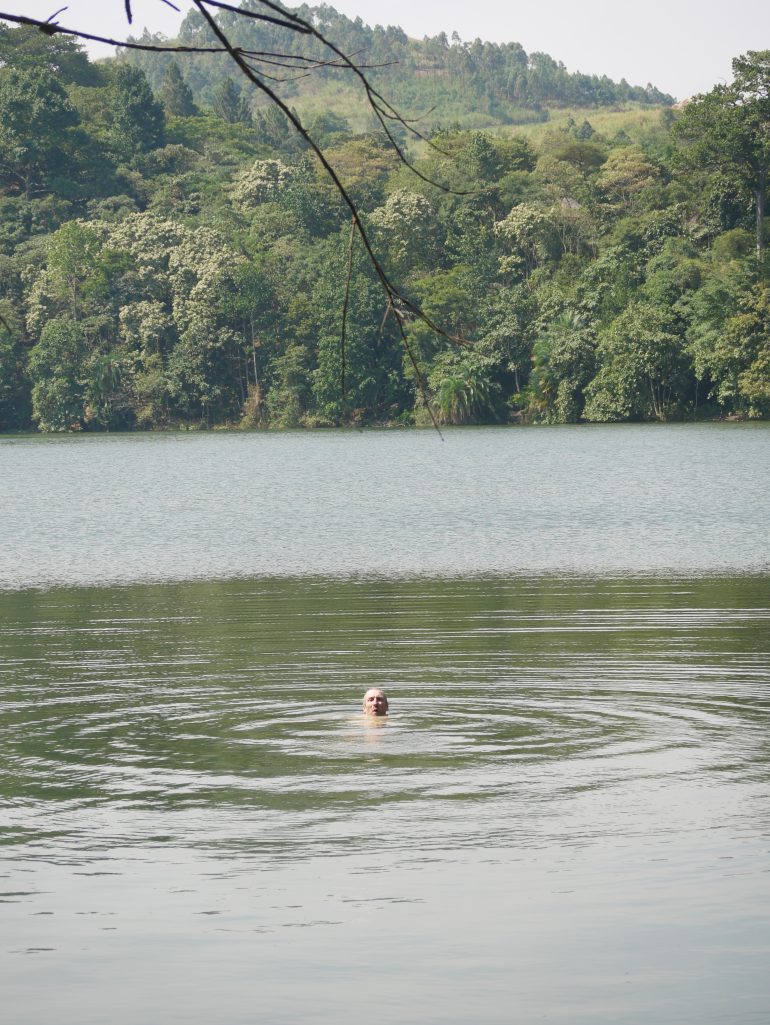Uganda Part 2 – Sipi to Lake Lyantonde

12th July – 22nd July 2023
“Where are you going?”
“Lira”
“That’s a long way!”
“Then after that Masindi, Fort Portal, Kasese, Kabale, Mbarara, Masaka and back to Kampala”
“Eh! On this bicycle?”
“Yes, all on this bicycle”
Then looking at Kirsty who is sat on her bike with her bike helmet on having just cycled into the same village on her bike:
“And what about her?”
“Yes, I’m riding with him”
“EH?!”
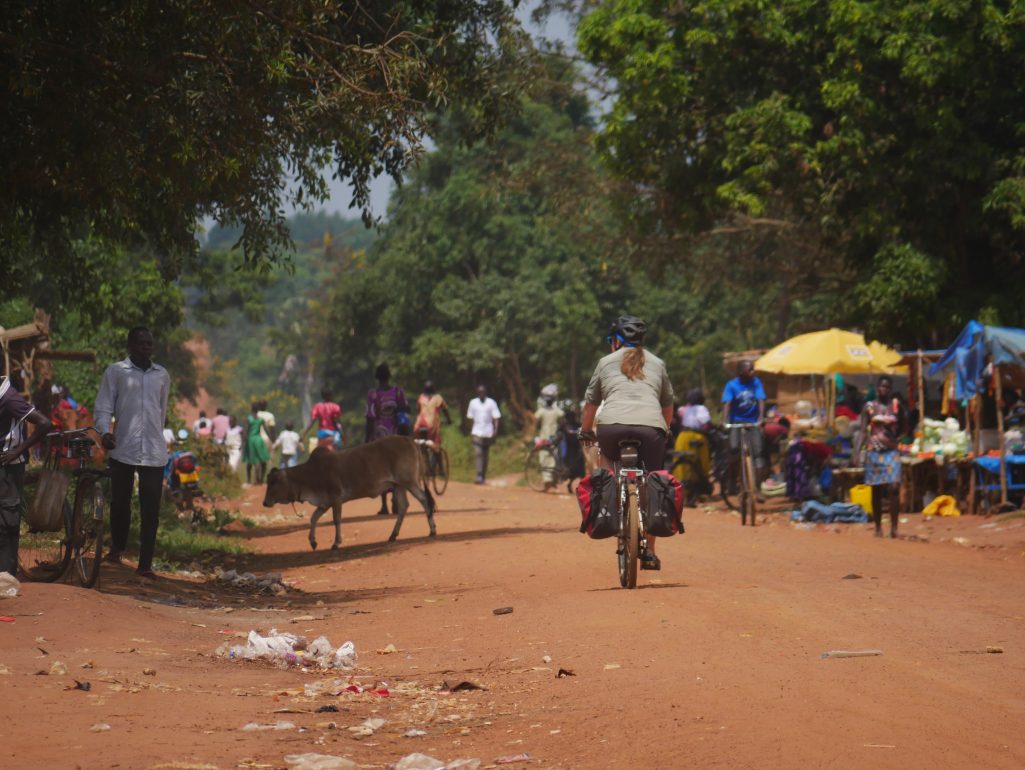
Throughout most of Uganda women don’t ride bikes. A few small regions are an exception to this, but it is a rarity thanks to an acceptance that it just isn’t appropriate in their culture. When Kirsty arrives on a fully laden bike having ridden from the previous town heads turn and we have the conversation explaining that she is more than capable of riding round their country. she’s told that “You must be very strong!”. And she is, but so are Ugandan women who are able to carry huge loads on their head while carrying small children on their backs. Given a chance they’d be more than capable of riding with us. It’s just a shame they don’t have that chance. We have to consider ourselves very lucky to have the time and resources to be able to travel this way and to be able to see much more of Uganda than the average Ugandan man let alone a Ugandan woman.
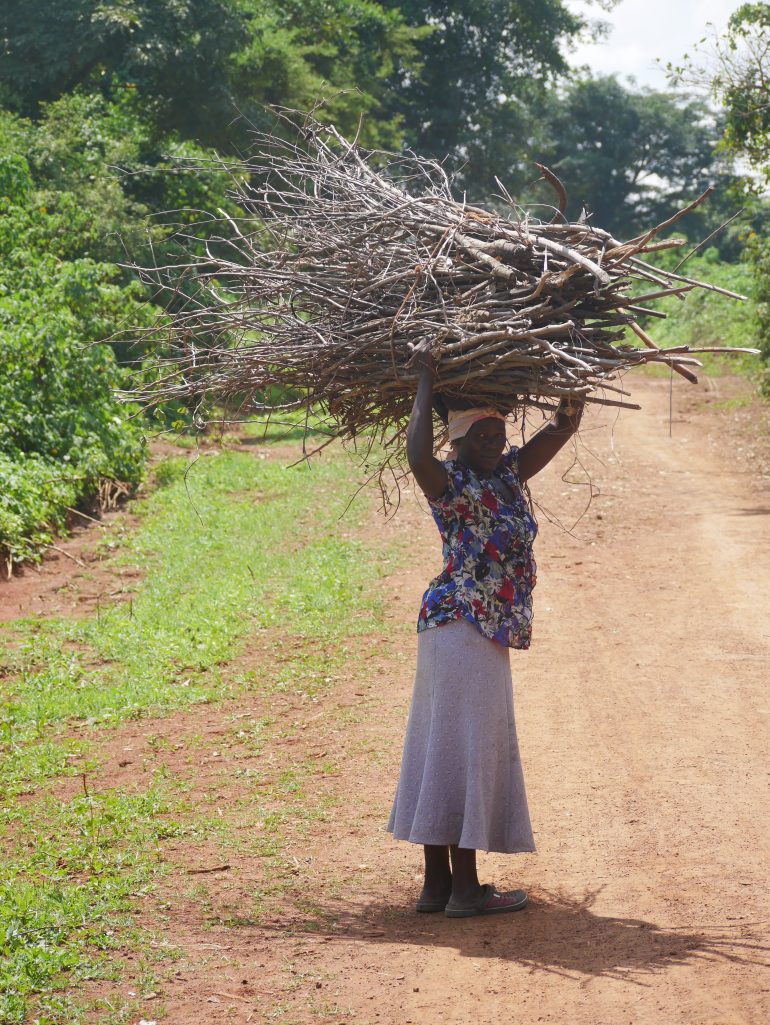
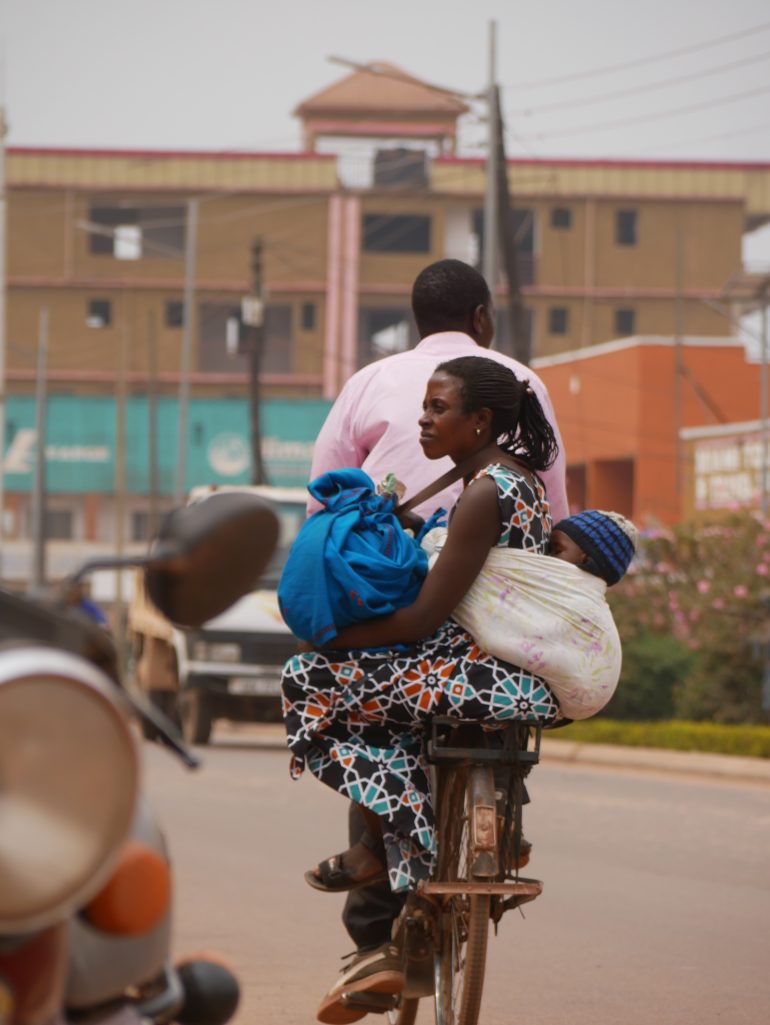
When you start your ride at the top of Uganda’s longest continuous climb it means you have Uganda’s longest continuous descent to look forward to. After a guided trek to see the magnificent Sipi falls up close and a lengthy bike maintenance session cleaning off the mud, replacing a broken spoke and tweaking worn brake pads we speed back down to the bottom of the mountain.
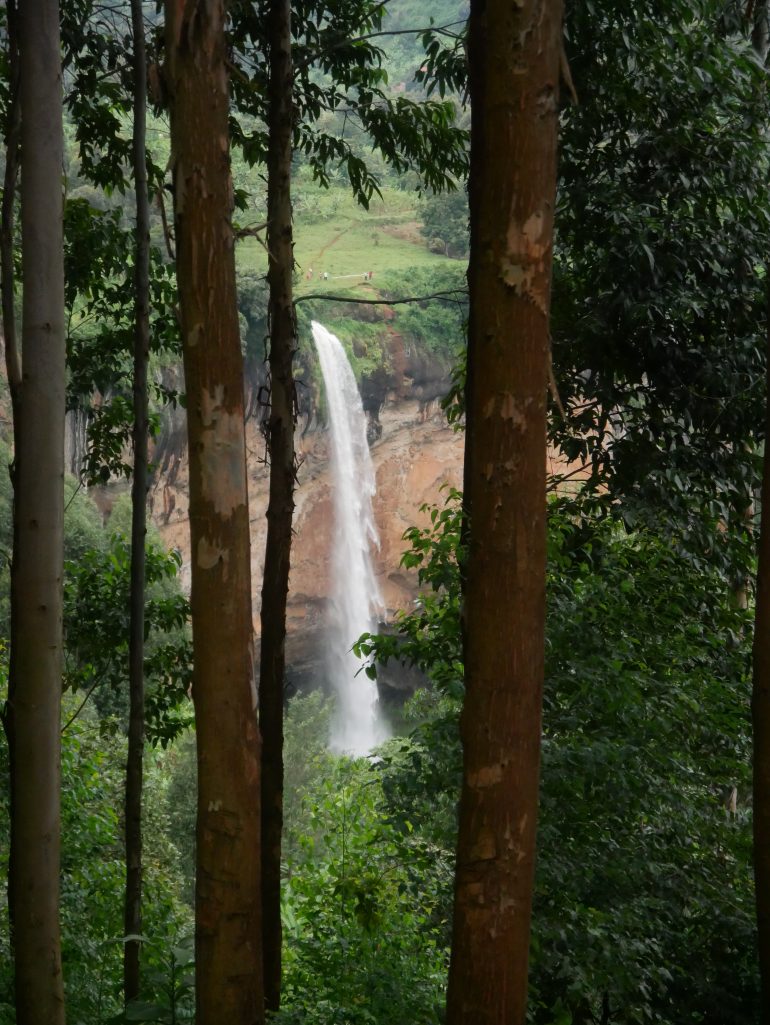

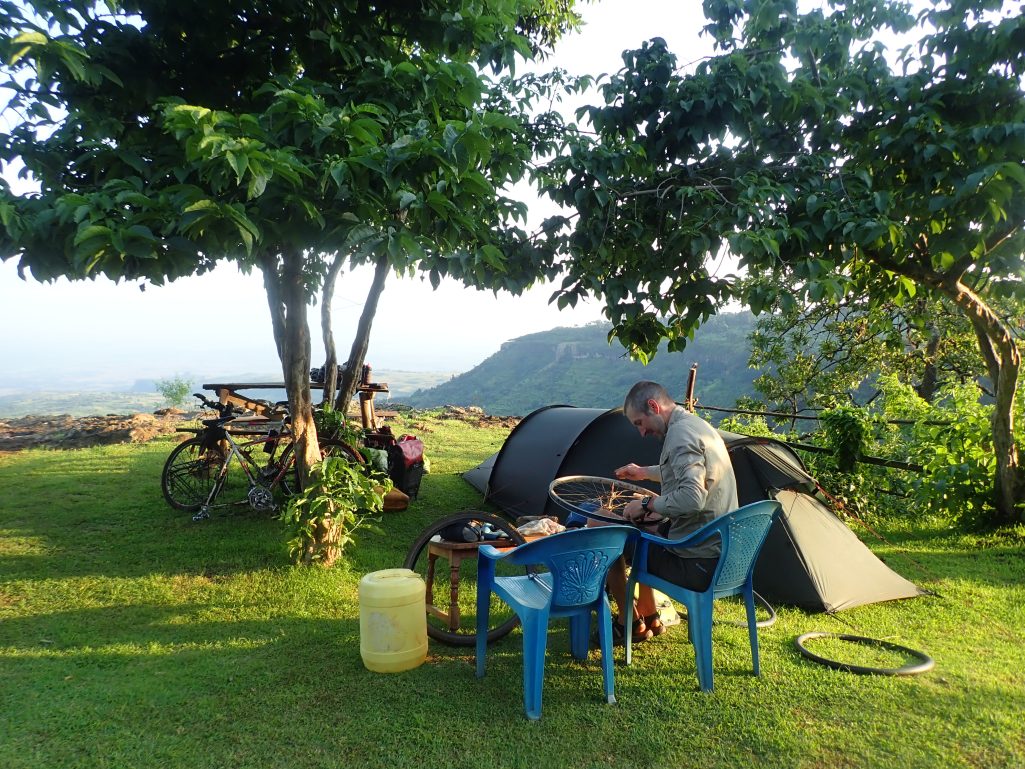
Our pace remains high as we head towards the flatlands north of Lake Kyoga on smooth gravel roads. There is the threat of rain in the huge grey clouds overhead and when lightning flashes on the horizon we brace ourselves for another mud bath but thankfully the bad weather stays in the distance. We’re now in the Tebe region (“Yogga” is the greeting and “Yogga noy” the response) and the children seem to be more of the ‘stop-and-stare’ type than the shouting and chasing we had seen further south. Some of them almost look scared when the strange western people cycle past them.
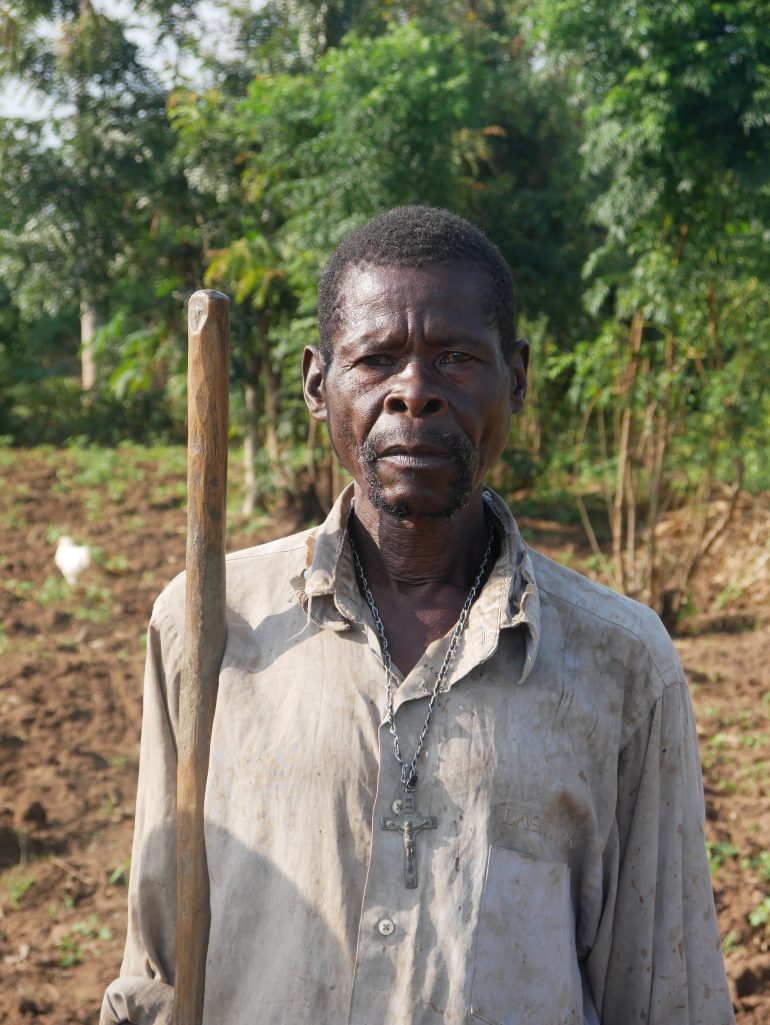
Moving further north we arrive at Nyero and stop to take a look at the famous cave paintings. The guides seem very happy to see us and when we sign into the guest book we can see why as they haven’t had any visitors for the last 3 days. The age of the paintings seems to vary depending on who you speak to but they are undoubtedly very old and very impressive and we feel privileged to be able to walk through the site without the crowds of tourists that they really deserve.
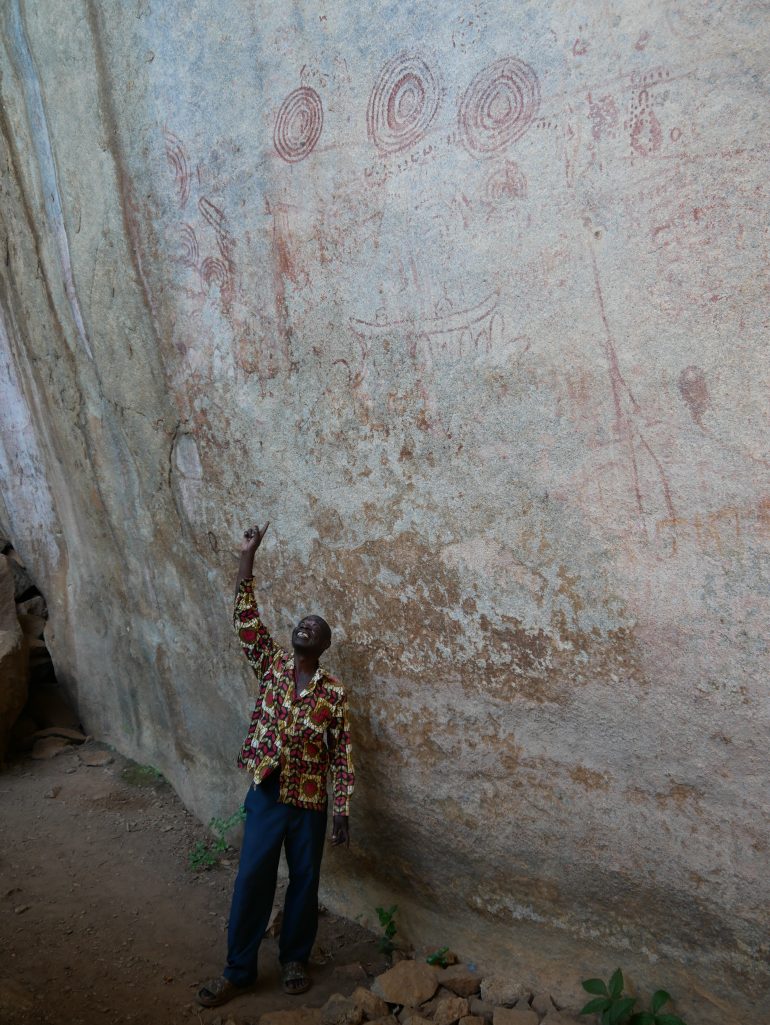
One of the legacies of the British colonisation of Uganda was an extensive rail system and we’ve crossed the tracks several times already. But although the signs warning of trains seem to be remarkably well maintained, there haven’t been any train services for years. Apparently there are plans to modernise the lines and get them up and running again, which can only be a good thing, but for now the abandoned railway system is a handy network of paths for anyone on foot, hooves or two wheels.
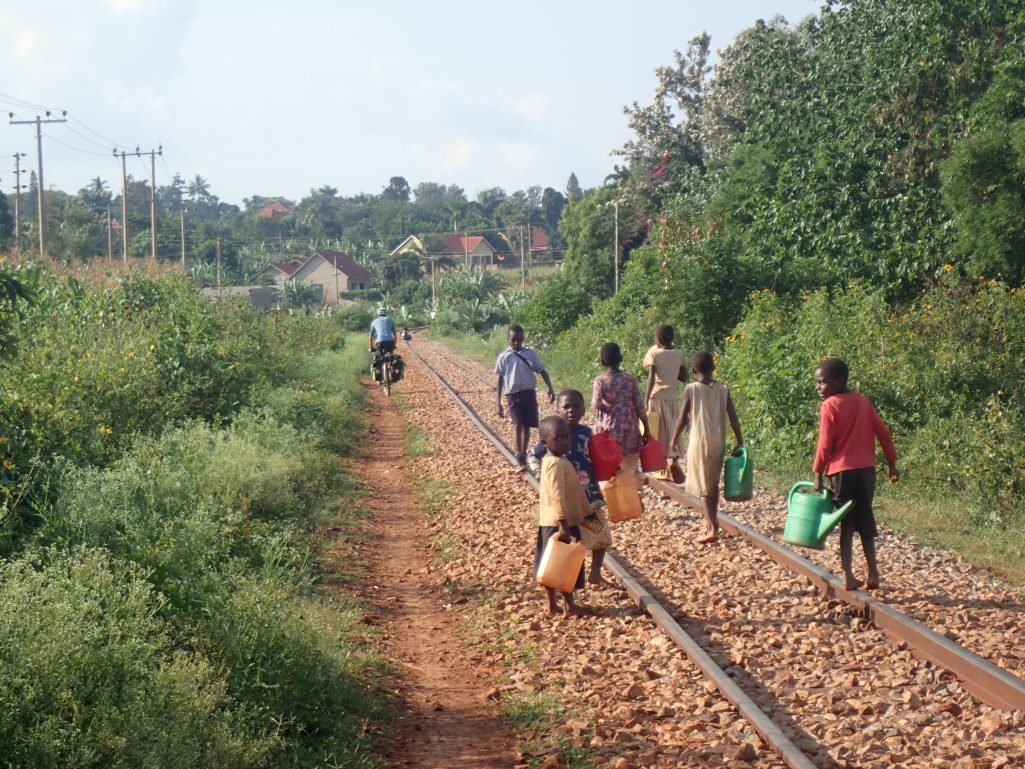
We follow a section shortly after Nyero and for a while it’s a lovely route with tall grass on either side taking us over a huge area of marshland. We then emerge onto a loose, gravel causeway that stretches out to a rusting iron bridge. Dismounting we tentatively manoeuvre the bikes around the exposed sleepers and lift them over sections that have rusted through to give a view of the water below. A small crowd follows us to see whether we make it. Back on solid ground we continue along the causeway on the other side for a few more kilometres until we reach the next bridge, only there isn’t another bridge. The twisted rails disappear into a 20 metre gap that is filled with lake and swamp. We’d been warned about this in an earlier conversation and the advice was to ‘wade across but keep left!’. I give it a go and apart from nearly losing my sandals in the mud, the warm water doesn’t go beyond my waist so I declare it a goer. Kirsty isn’t quite so keen but with the prospect of recrossing the rusty bridge and a lengthy retrace as the alternative she agrees to follow me. Panniers and bags go across on one journey then the well timed arrival of a local man helps us bring the bikes across above our heads. We ride some more before finding another downed bridge. This time we hope to keep our feet dry when some local fishermen offer to ferry us across. Their simple wooden boat is barely afloat and can only take one of us at a time after bailing out as quickly as it refills. So much for keeping our feet dry. The pilot keeps things simple without the complication of paddles or oars by simply sliding a flip flop onto each hand to power us across.
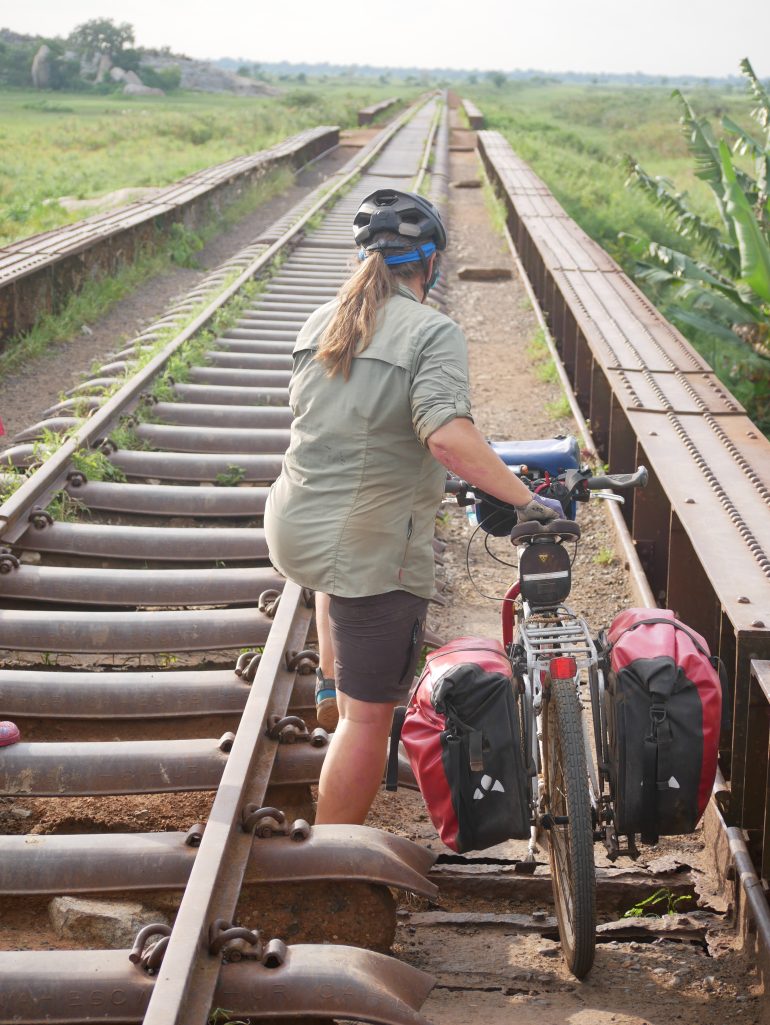
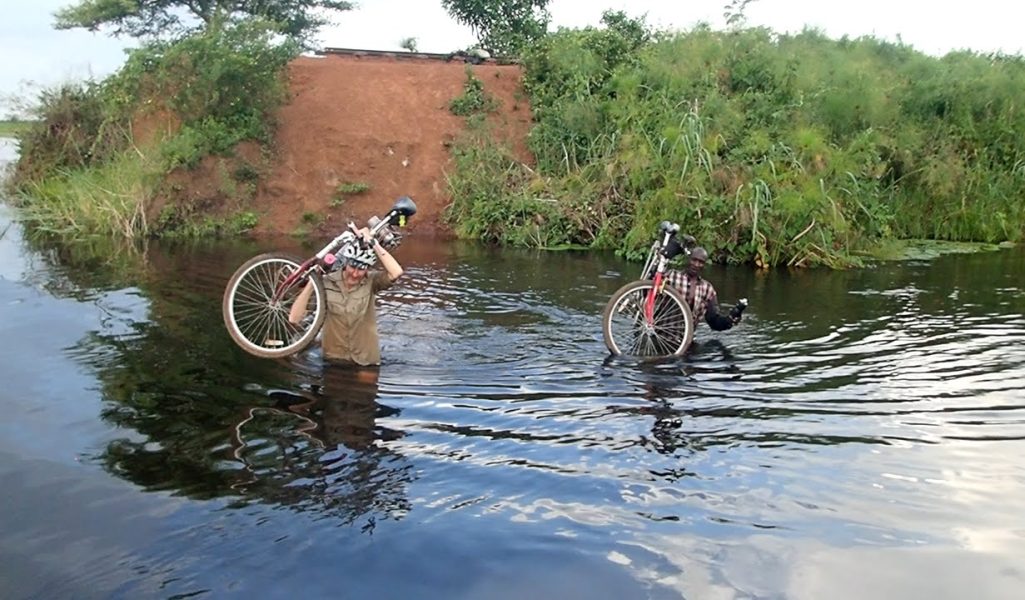
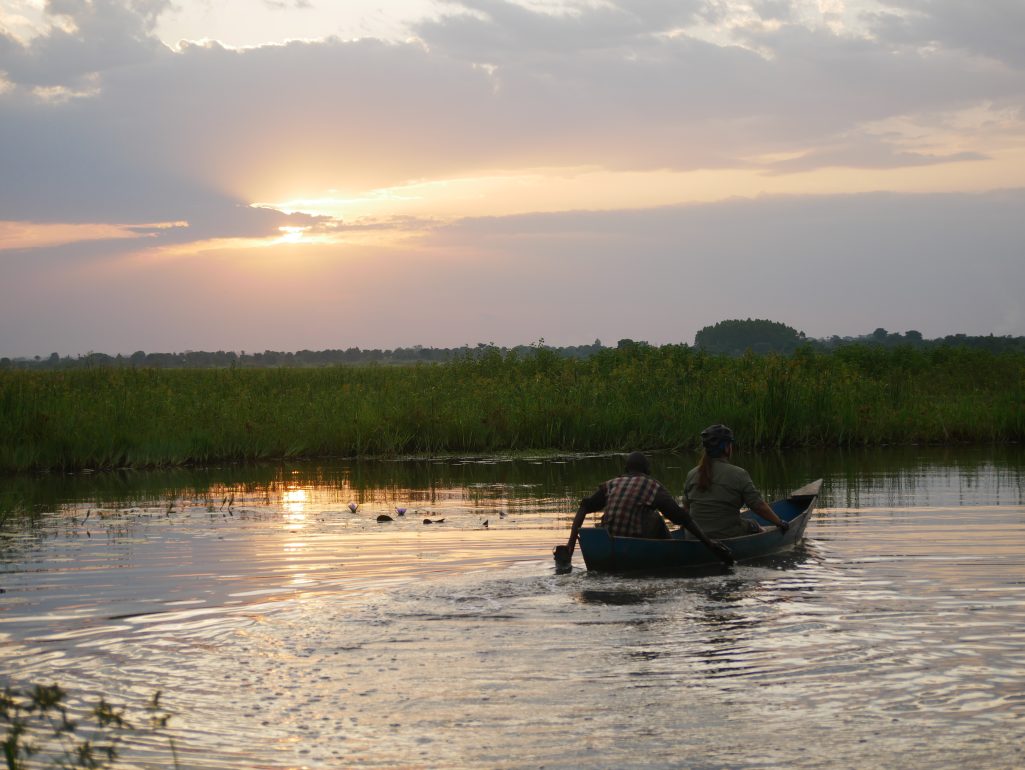
By now the sun is low to the horizon and the air is full of the sound of frogs starting up their evening chorus. We thank our helpers as they disappear out onto the lake for some night fishing. The whole episode has left us well short of our target town for the day, so we head to the nearest village and in the last light of the day we manage to find the police outpost where we’re allowed to camp.
I can only think that there is no word for noise in any of the Ugandan languages, and there is definitely no such thing as a noise pollution regulation. Playing loud music is perfectly acceptable in any town and at any time of day. In fact if you own a speaker, then the standard procedure is to point it out of your door and turn it up to 11. It doesn’t matter if the shop across the street has also got their speaker pointed towards you and also at full volume. We get used to the bizarre sound of badly dubbed kung fu movies being broadcast from the only house with a TV in the village. It’s no surprise then that when we’re camping at another police station our conversation with the officer in charge is drowned out by loud music from their neighbours. “That’s the local college having a party” Officer Adeko explains “Do you want to go and look?”. He leads me down to the college where we join a large group of students busy dancing their socks off in almost total darkness. There’s enough power for the sound system but not the lights.
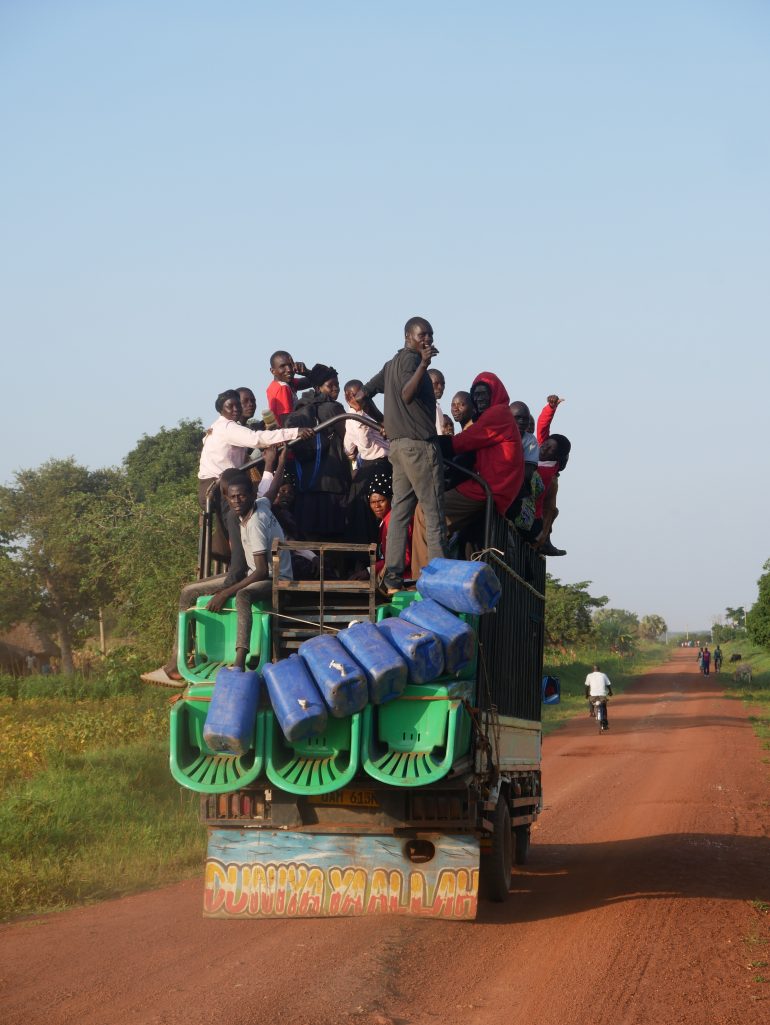
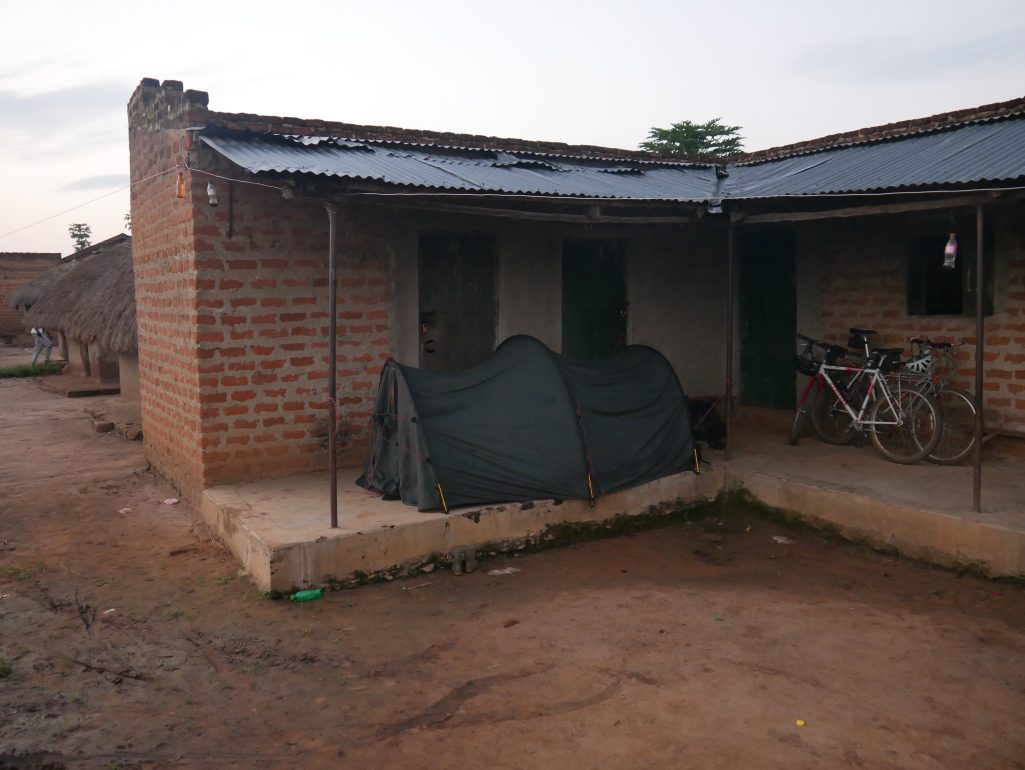
We go back in the morning and meet the principal and a few of the teachers. The Ocamonyang Technical College has been set up to provide vocational skills to underprivileged young adults from the surrounding villages and teaches skills such as welding, brick laying, carpentry and sewing. It’s a simple facility but the pupils benefit from being able to go back to support their families with better paid jobs as a result. Seeing the passion and belief of the staff despite having to part-fund the project themselves along with the small level of fees that the pupils pay leaves us feeling emotional and determined to see whether we can help support them when we get back home.
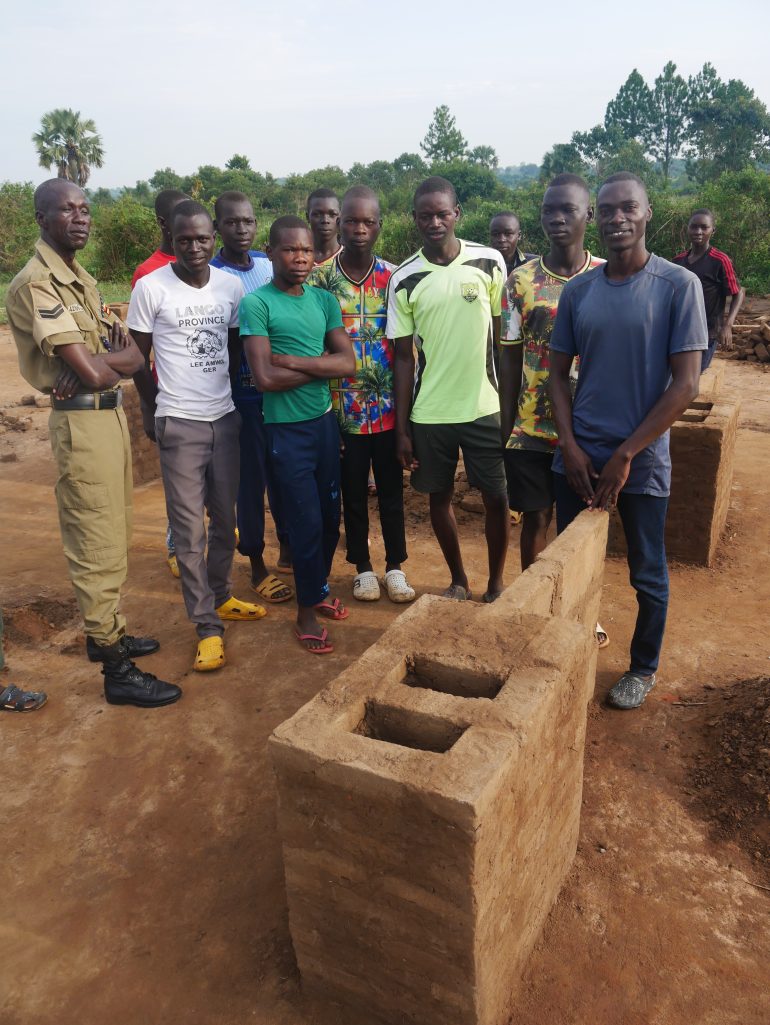
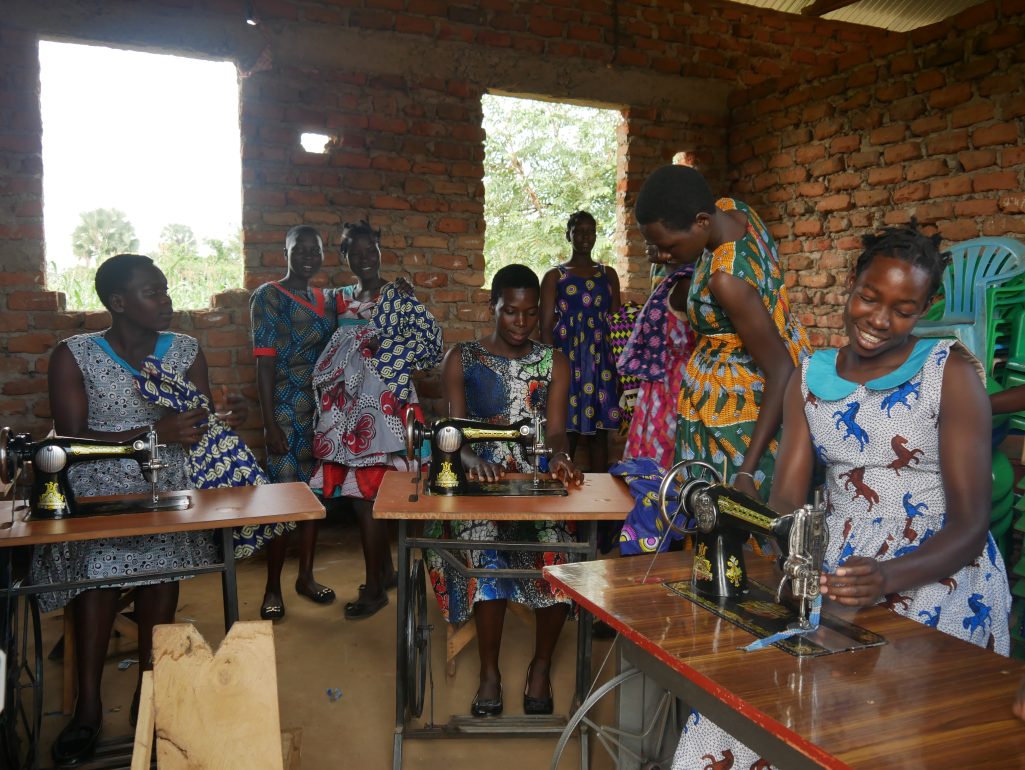
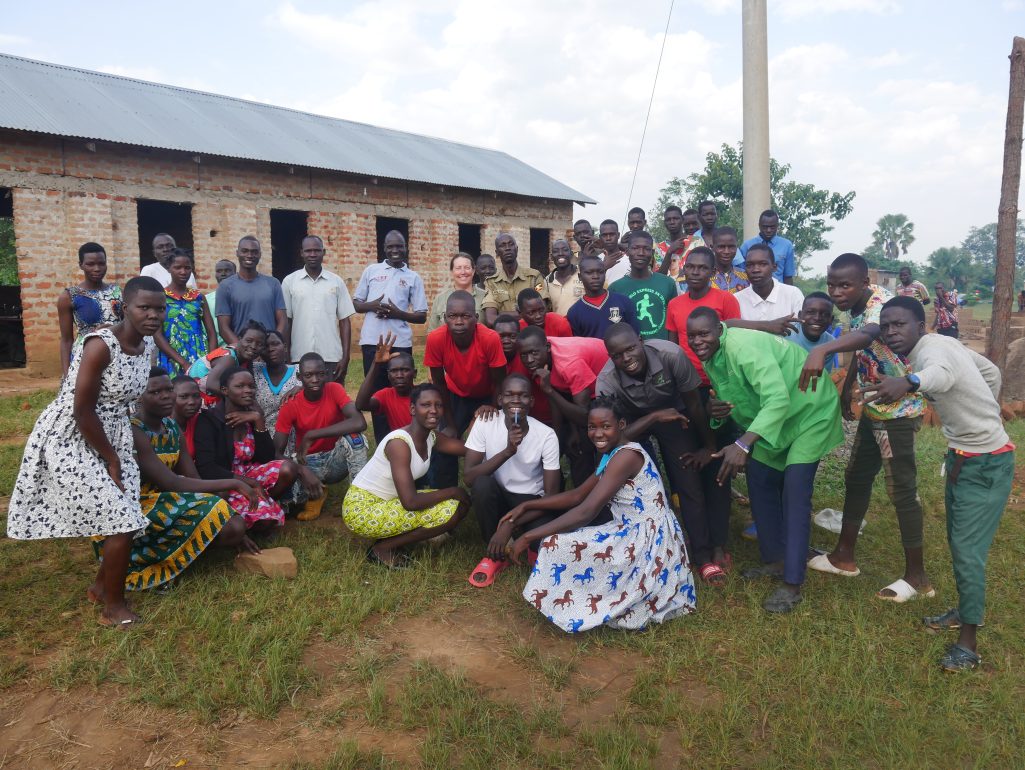
We’re waved off by the entire college and make the short ride into the town of Lira where we have an appointment with Ruth from Platform for Labour Action (PLA). This is an organisation that is supported by Action on Poverty (APT) in the UK who we have been raising money for during our trip. Ruth is another example of someone who has total belief in what she and PLA want to achieve despite considerable hurdles and dwindling funding. She takes us down to the local market where we meet some of the market traders, almost all of whom are women. PLA have been working with the women to help them learn new skills and to be better represented on the market council. Despite 90% of the stall holders being women almost all of the council used to be made up of men. PLA’s project has had a dramatic effect with many more women gaining the confidence to put themselves forward and be elected as council members, and a multitude of training sessions allowing them to diversify their businesses and even manage their home finances more effectively. Simple steps towards much happier lives. If you’d like to help APT and PLA with more projects like this then our fundraising page can be found here: https://www.justgiving.com/page/kirsty-marcus-uganda.
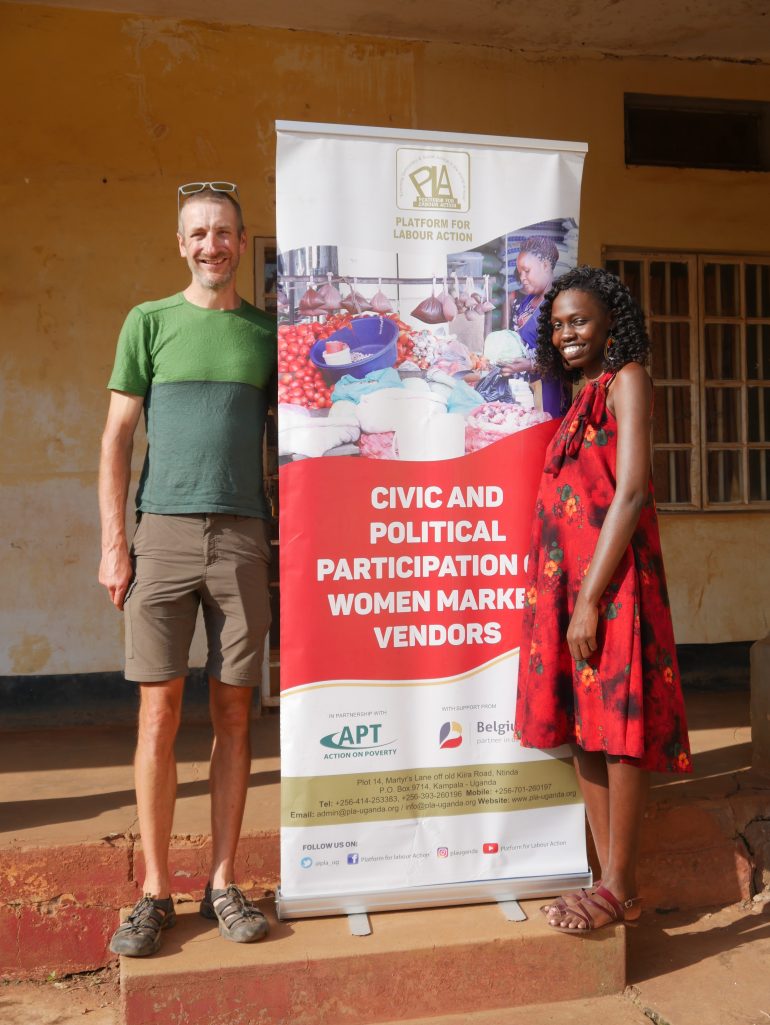
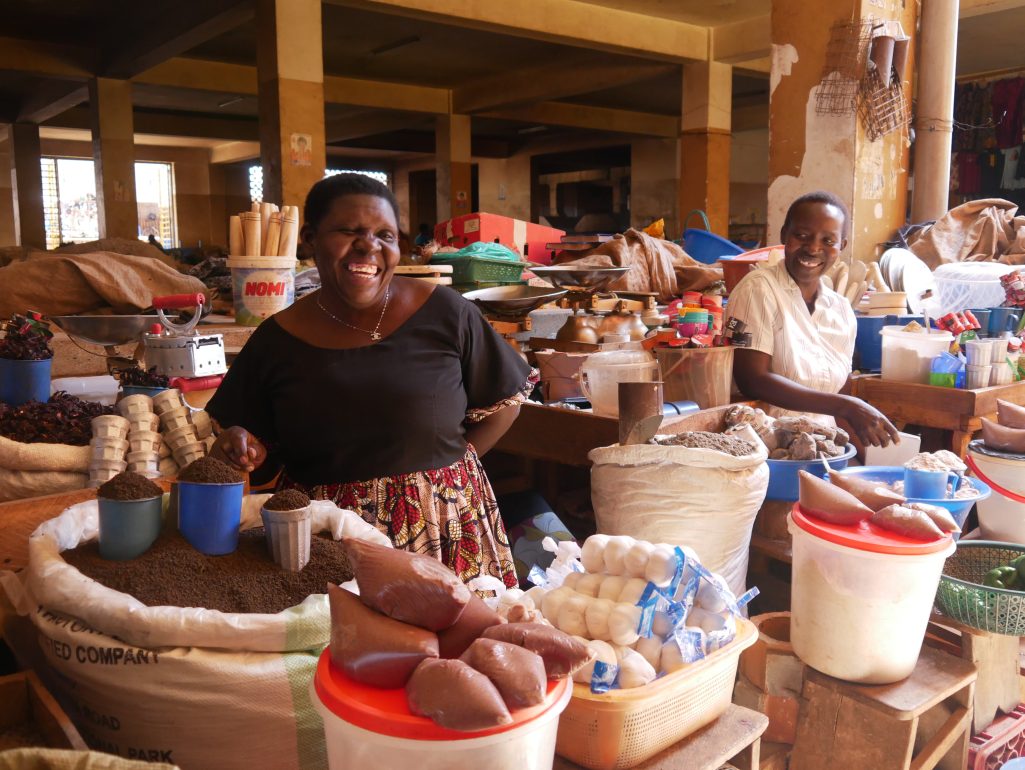
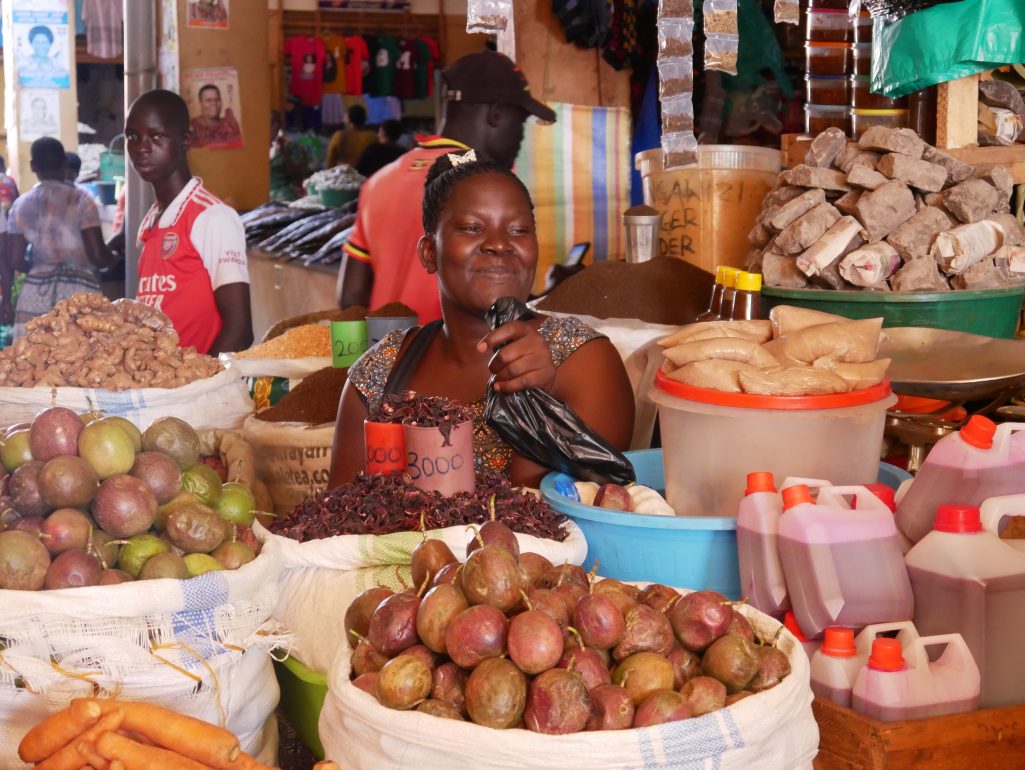
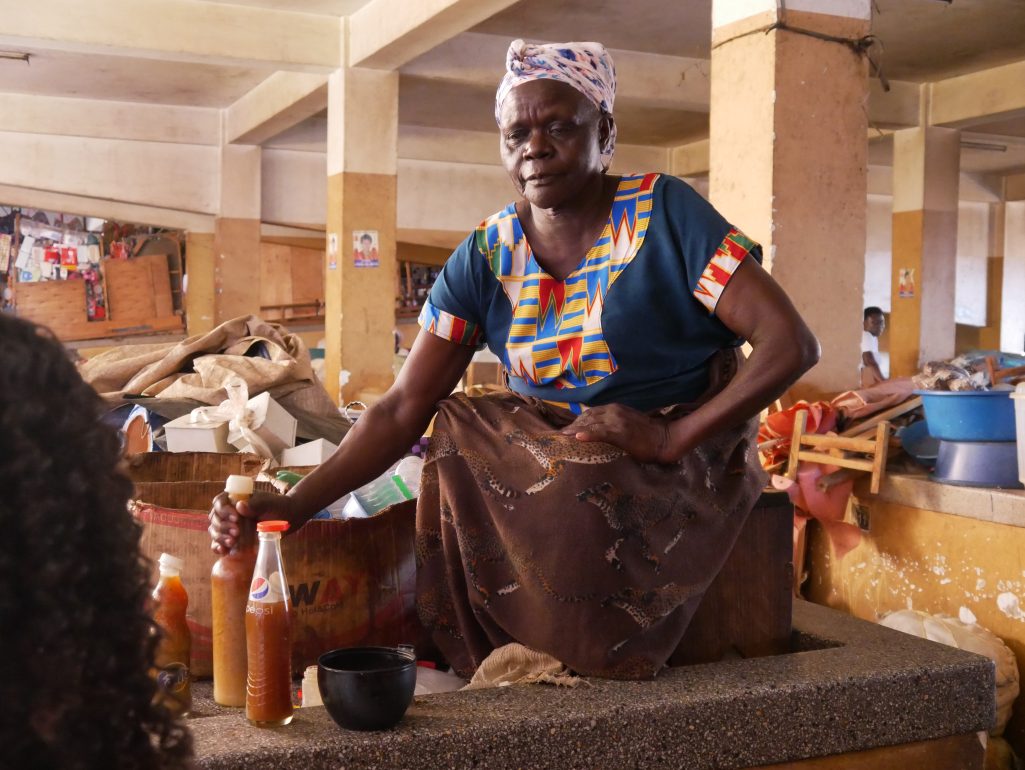
We leave Lira on a Sunday which has become our favourite day of the week as everyone is dressed in their Sunday best with smart suits and beautiful, colourful dresses. Songs and music spill out of each of the many churches we pass and at one al-fresco service we stop to watch the congregation dancing and waving as if it’s the headline set at Glastonbury.
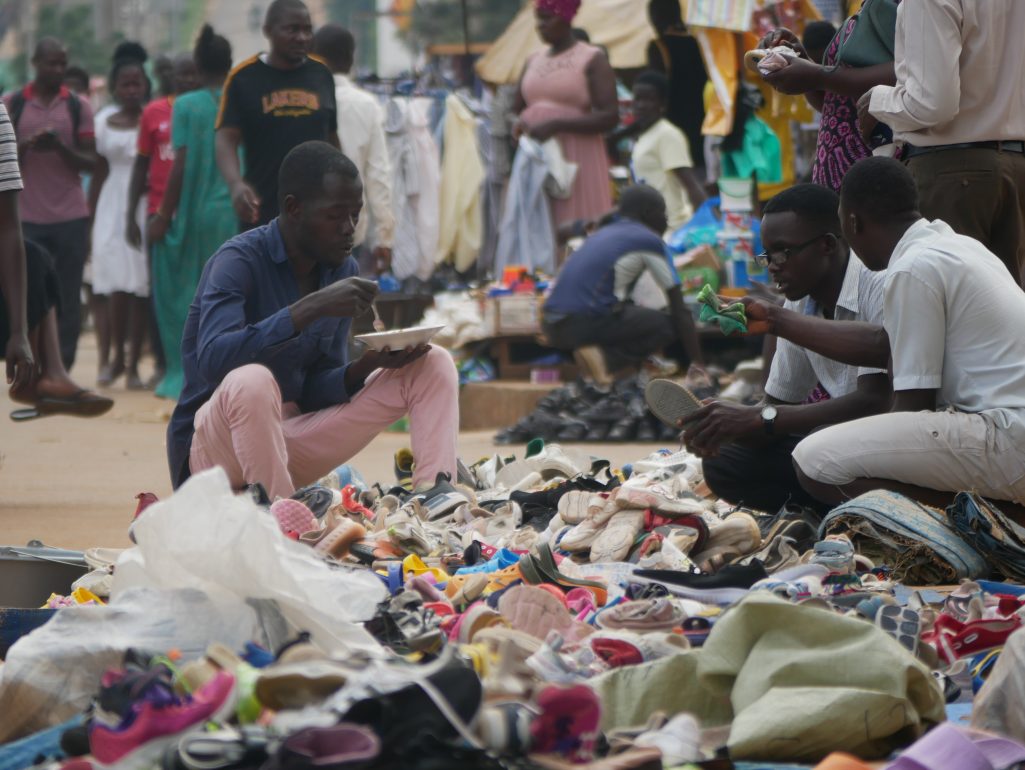
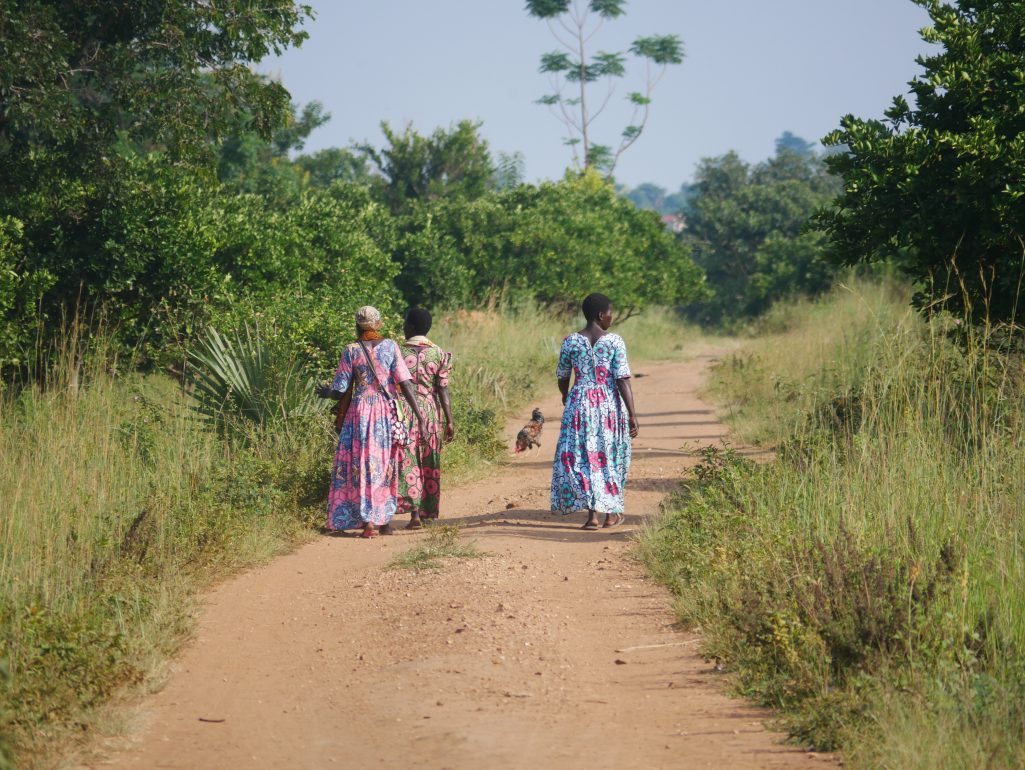
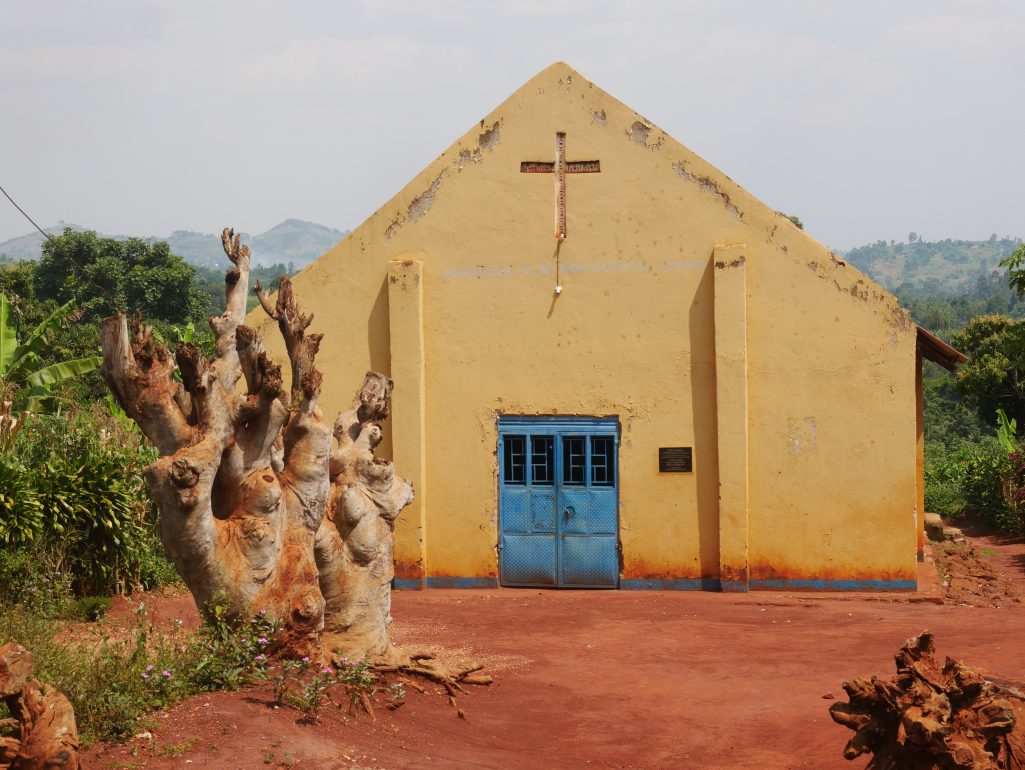
We’re now passing through the Lango tribe so our greeting is “Apoyo!” to be replied with “Behr!”. Whether it’s because they are happy that it’s a Sunday or if this is a more friendly tribe is hard to know but we find ourselves amongst smiles all along the road and have many fun conversations while buying bananas and pork skewers. It’s noticeable that there are women riding bikes here and we even see a man sitting on the back of a bike being ridden by his wife. It’s a beautiful road surrounded by woodland interspersed with immaculate groups of thatched bandas and there are brightly coloured birds of all shapes and sizes flying alongside us. There are nearly 1100 types of bird in Uganda compared to just 625 in the UK and every day we spot a whole collection of new species that we’ve never even heard of before.
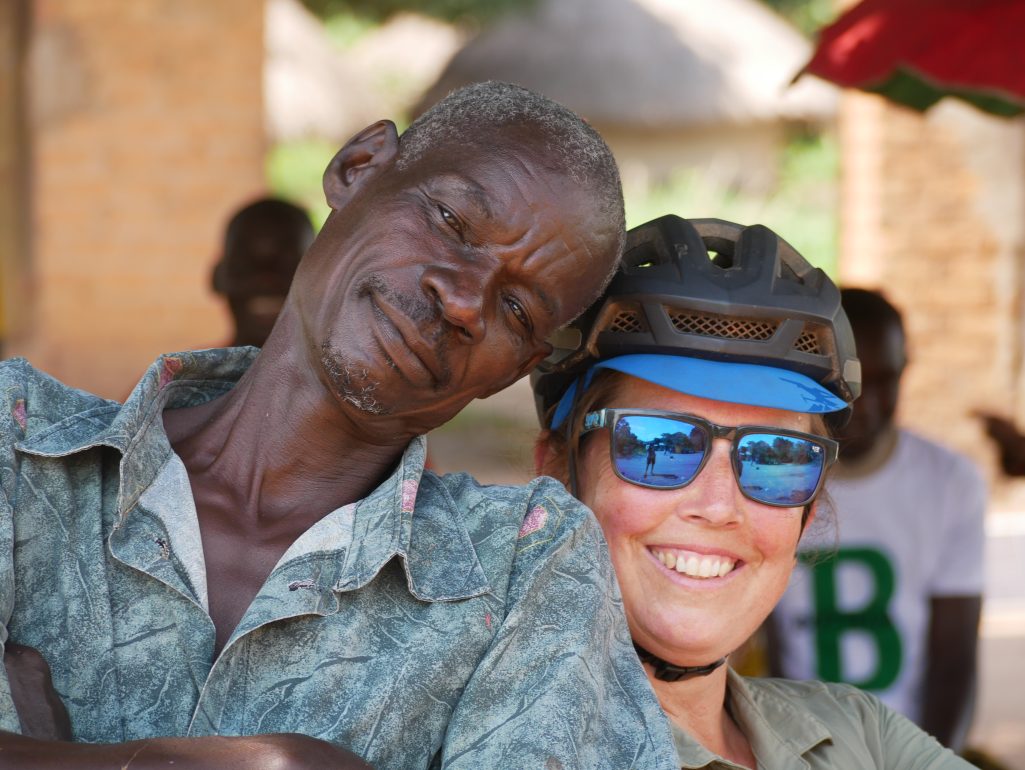
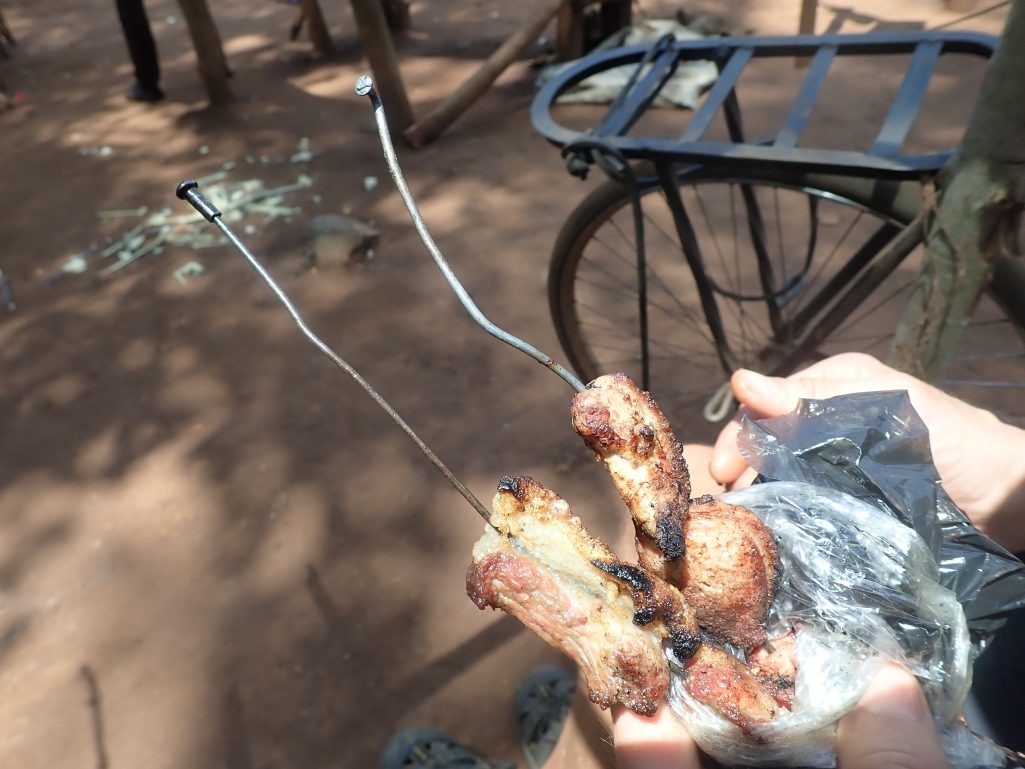


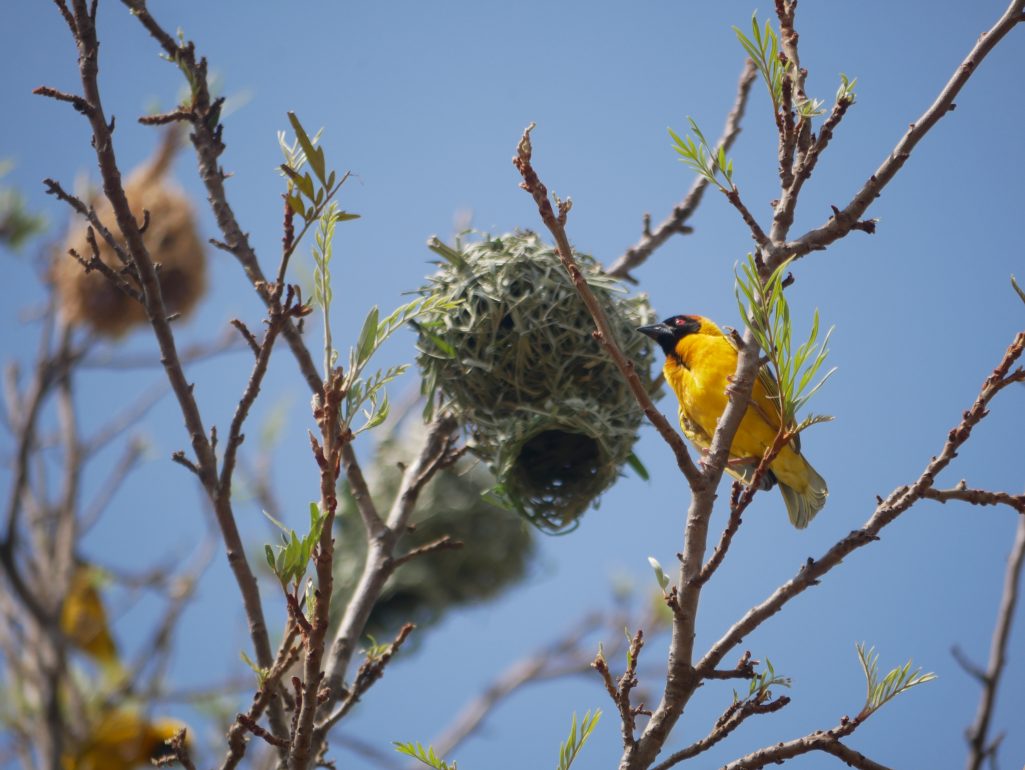
Between Lira and Masindi, the next big town on our route, the villages are small and there aren’t many accommodation options. Luckily we’d been tipped off about a catholic school that is helpful to cyclists so pull over as the light starts to fade and ask a group of pupils if there is somewhere we can stay. One of them leads us to the home of Father Stan who doesn’t seem at all surprised to see us. Grinning he tells us that “It’s no problem, many cyclists have stayed here!” and shows us a small shelter in the grounds of the school tucked away next to the huge church. We decide to forego the tent and string up the mosquito net instead and settle down underneath it with a clear view of the stars. We regret this decision almost immediately as we’re buzzed by the mossies all night trying to get a nibble through the thin netting.
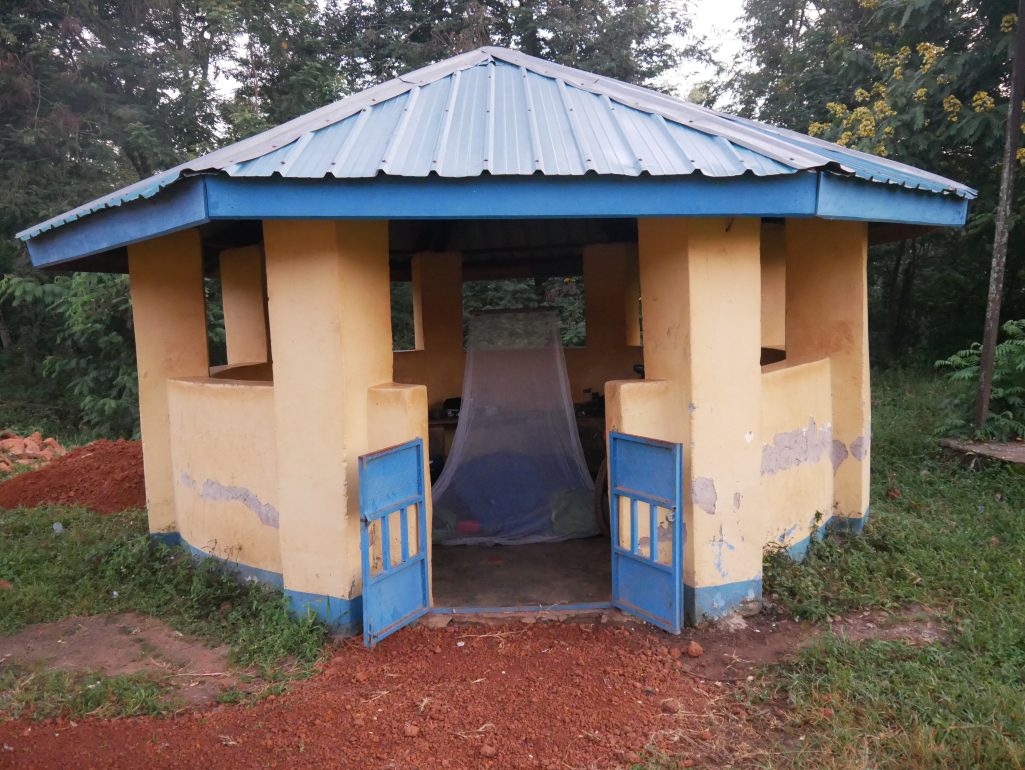
Before Masindi we have to cross the Nile again but it is now about 500m wide. What appears to be a large pontoon with a diesel engine strapped onto the side pulls up to the jetty an hour later than the timetable suggested and is quickly filled with trucks, cars, mopeds, foot passengers and us, while somehow staying afloat. We chunter across the enormous river and watch sea eagles and fisherman competing for the same bounty in the water. On either side of this crossing Chinese contractors have been busy building a smart new, multi-lane highway with the best road surface we have so far encountered in Uganda allowing larger volumes of traffic to speed along to the river. Whether an upgrade to the ferry service has been factored into the plan is unclear.
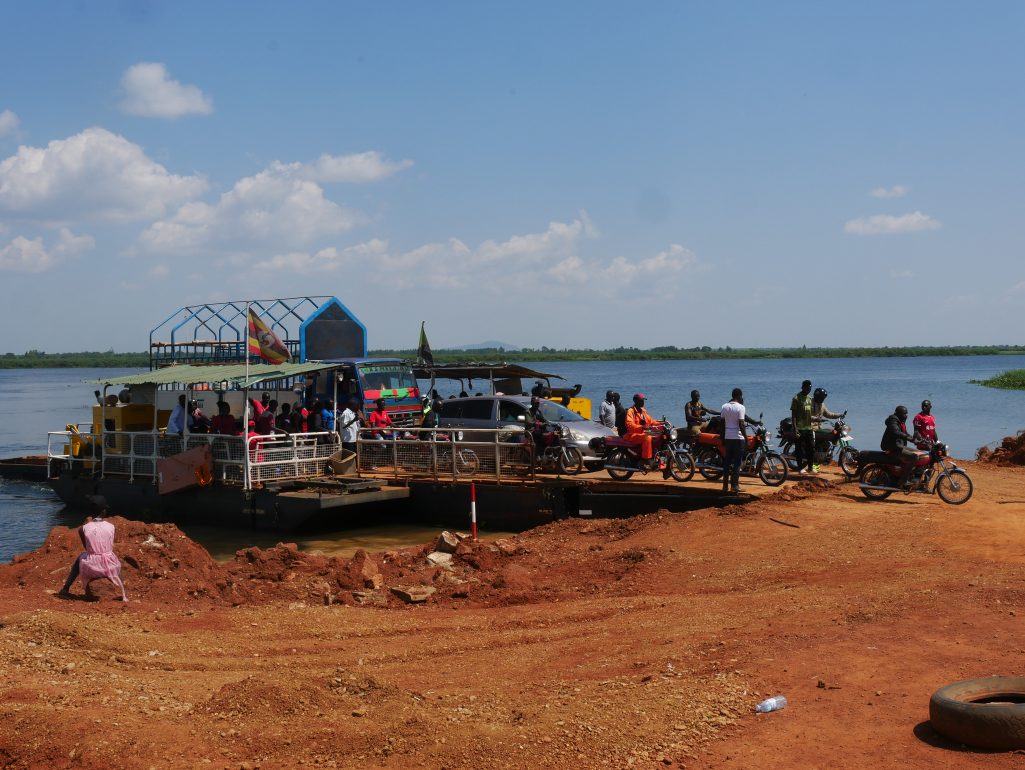
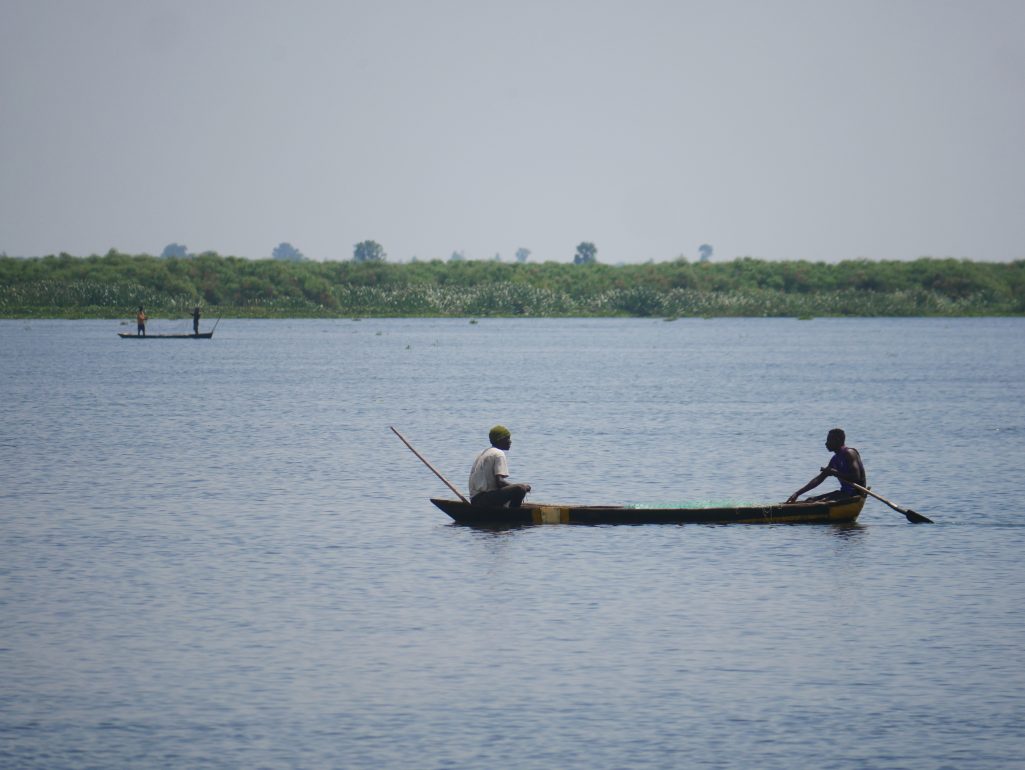
On the other side the landscape starts to fold into more undulations and we start to see herds of ankole cattle with their unbelievably large horns. After winching up a steep hill, Masindi is a welcome sight and we savour a pit stop at a comfortable hotel and refuel at a cosy cafe round the corner.
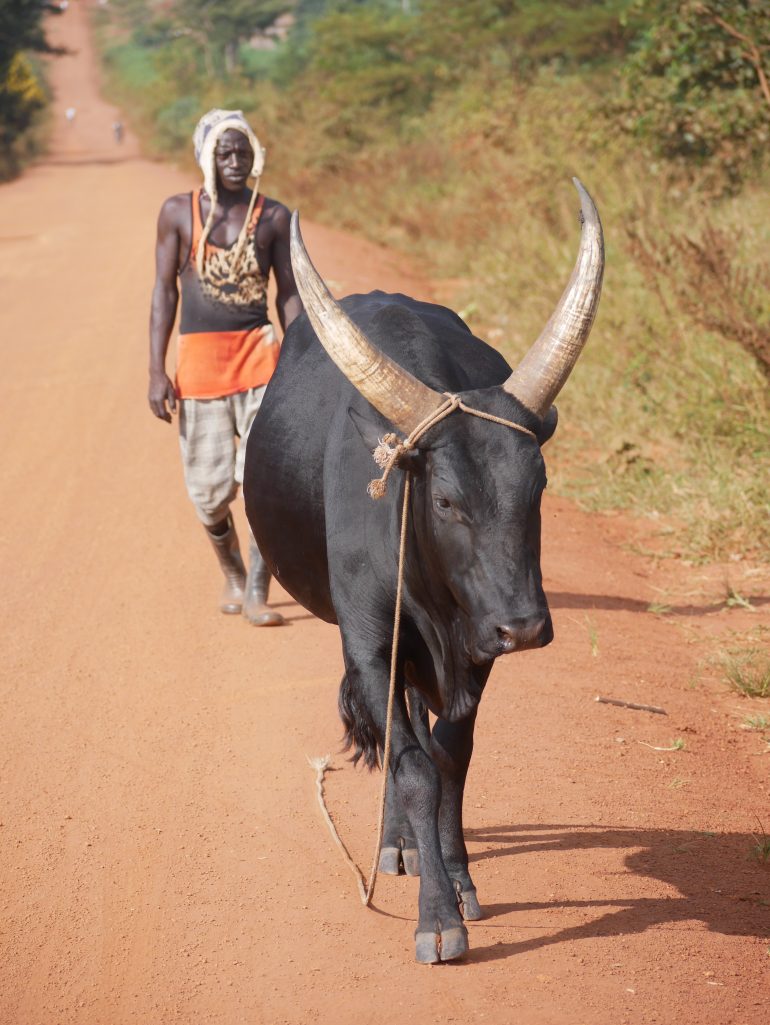
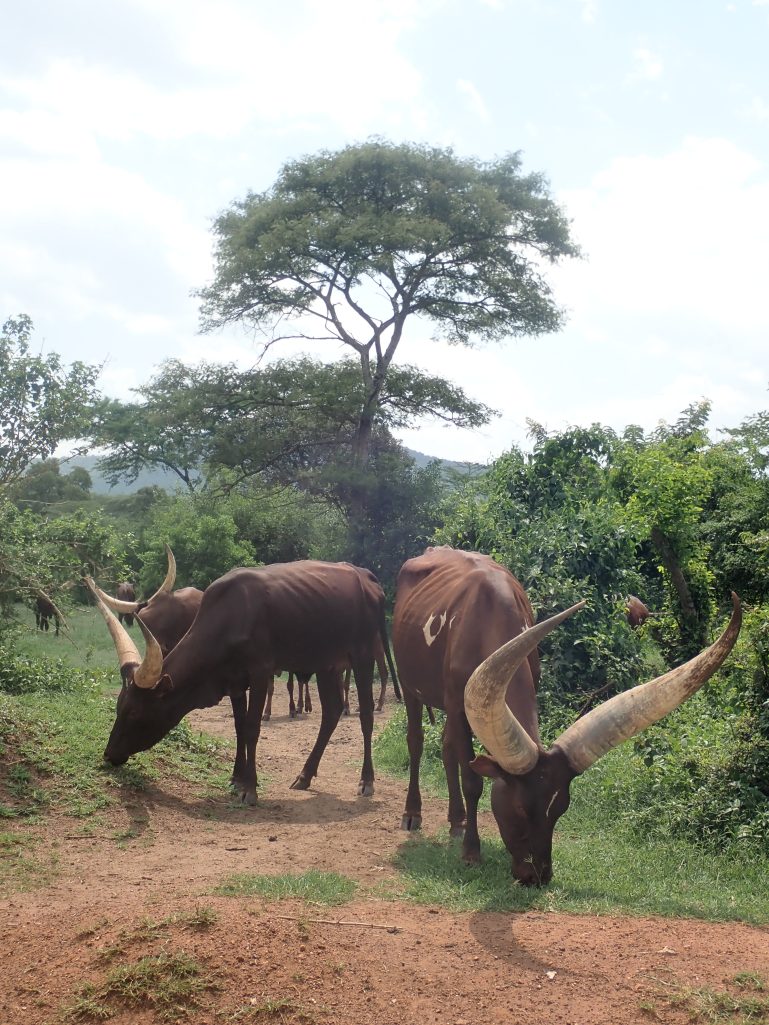
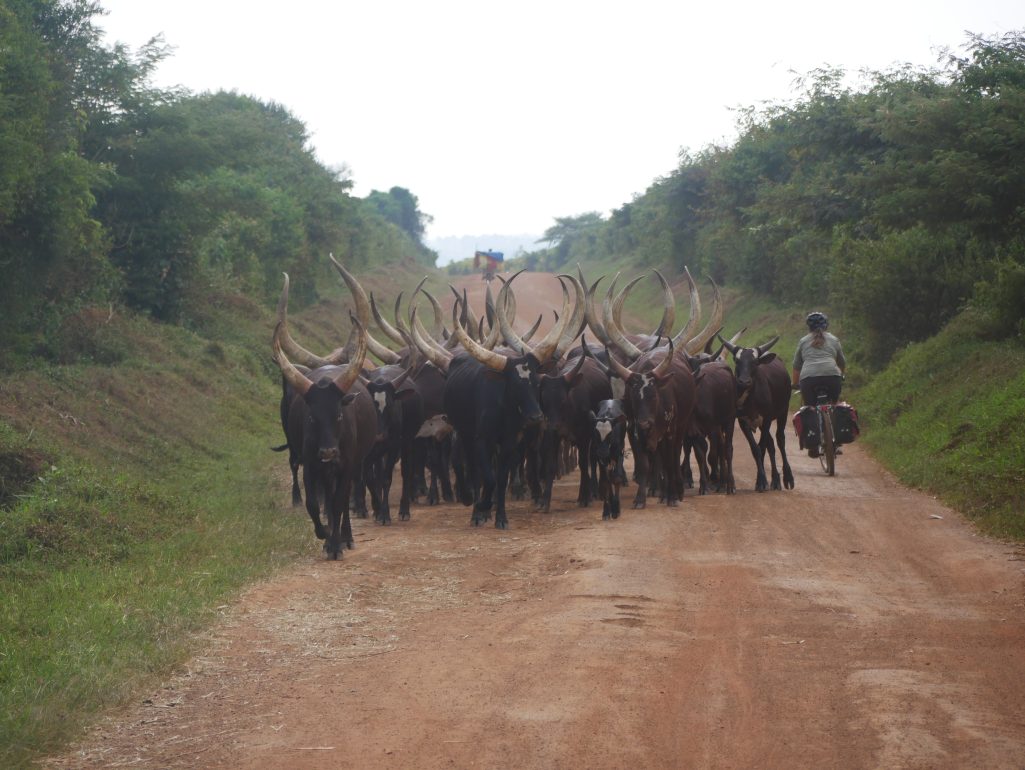

We’re now on the west side of the country and will turn south to follow the border with the Democratic Republic of Congo (DRC). We realise that we haven’t seen any mzungos since Sipi but we’re now entering some of the most popular tourist regions in the country so spot a few more white faces in the back of large safari trucks. We’re out of the flat lands and have to work for our kilometres again with some steep climbs on dusty tracks taking us down to Hoima then a roller coaster of even steeper and rockier roads eventually bring us out onto the main highway.
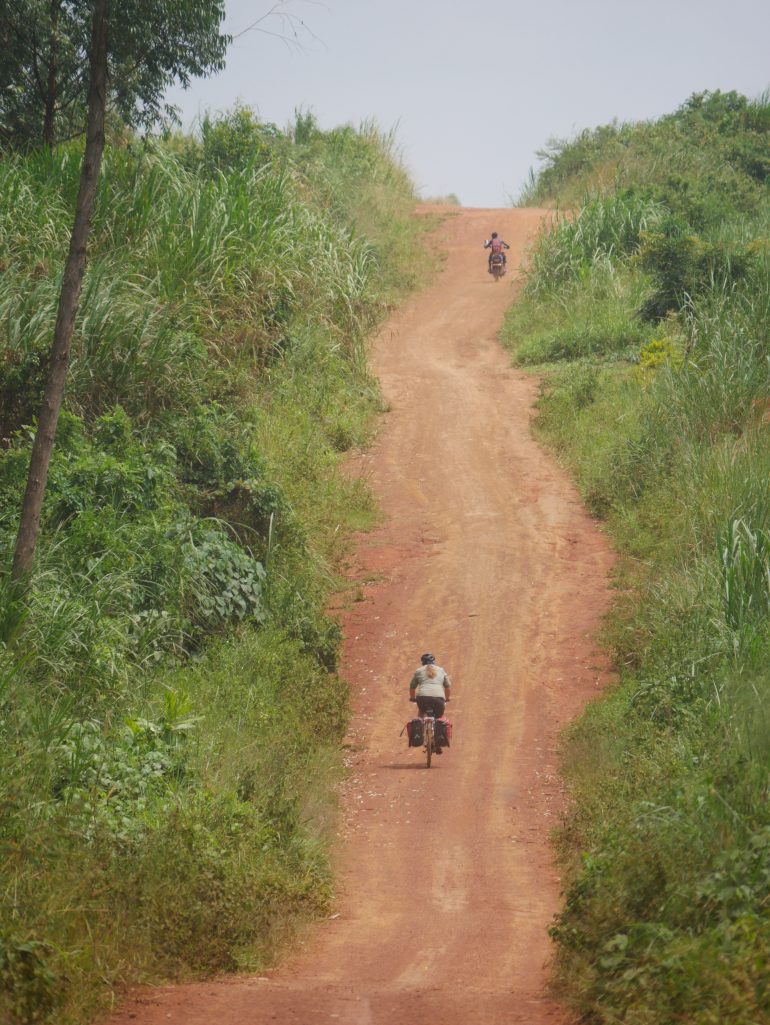
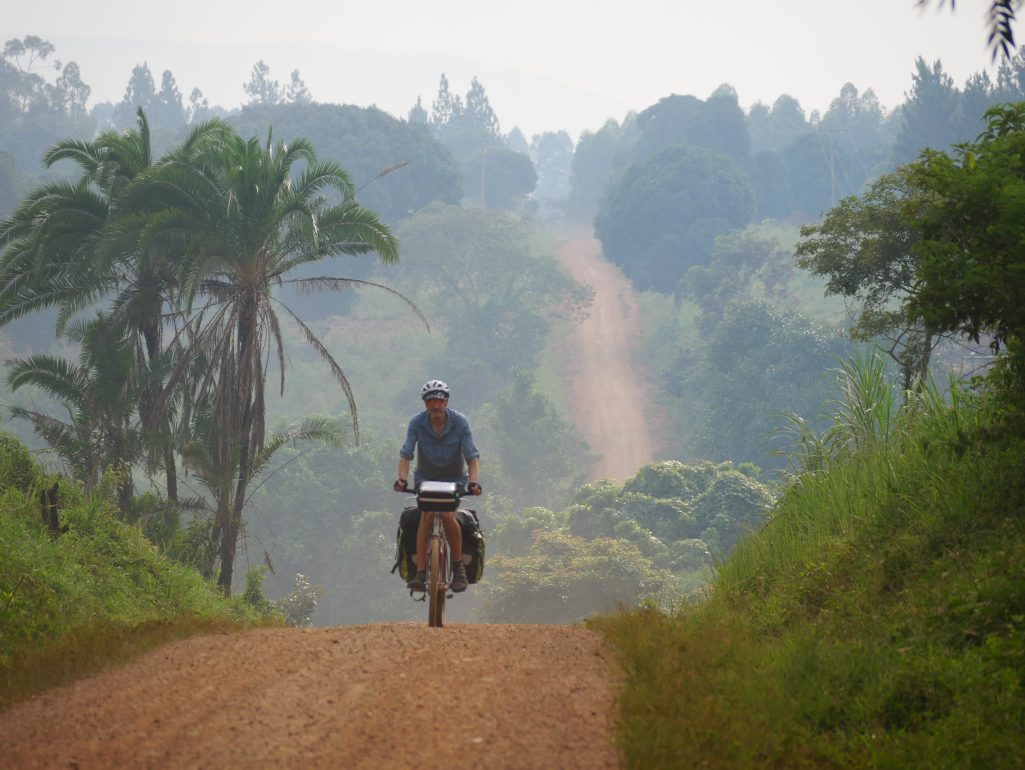
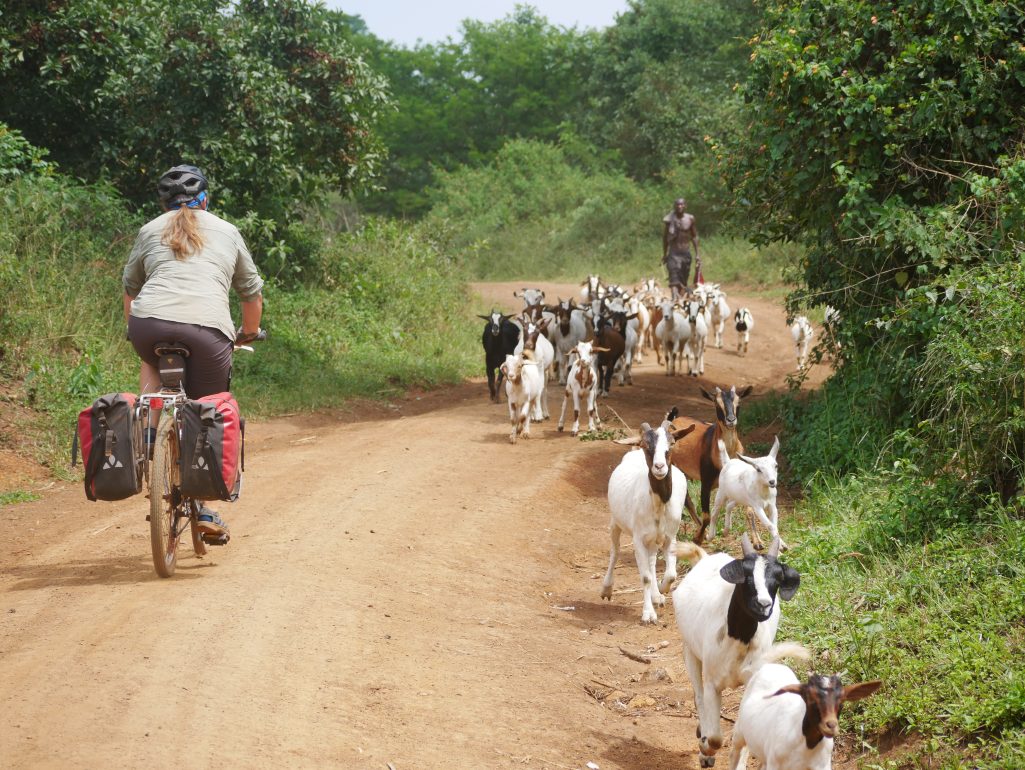
We should be glad to have some respite from the challenging local roads but the highway reveals a slightly different side to the country. The traffic is relatively busy (compared to the few boda bodas we would see on the local roads) and when we stop the people seem less welcoming and instead demand money. There are safari trucks speeding past all the time without stopping so maybe this has created a bit of resentment for the rich westerners? We have a day and a half of this to get through so put our heads down and turn the pedals as best we can.

Eventually we find a turning back on to the dirt roads and instantly our shoulders drop and we can relax again. We freewheel down over a stream and into a huge forest where monkeys watch us curiously from the tree tops and clouds of butterflies fill the air. Passing through a tea plantation we end the day at the village of Kyarusozi. We head to the police station and are invited to stay in one of the little tin houses by D.I. Caiphas. Along with one of the other officers they quickly build a fire and then ask if we like chicken. When the answer is yes Caiphas disappears into one of the houses and there’s a brief scuffle and some clucking before he emerges holding a lifeless cockerel. Later, while chewing on the freshly cooked bird we chat about our completely different lives. Life in the police force offers some job security but a lot of disruption to home life. They can be posted to anywhere in the country and often have to leave their families in their home town. Caiphas sees his wife and children every month or two. There’s also the challenge of having to police a region where they don’t speak the language. Caiphas dreams of something different and even has a degree in logistics but with 100’s of applicants for any decent job he’s not been able to put his skills to good use. His ambition is to try working abroad where he believes there are more opportunities but making that happen is anything but easy. He has a steely determination in his eye though so we’re sure that one day he’ll make it. We sit for a while in silence staring into the glowing embers of the fire while again guiltily thinking about the ease with which can travel with our British passports.
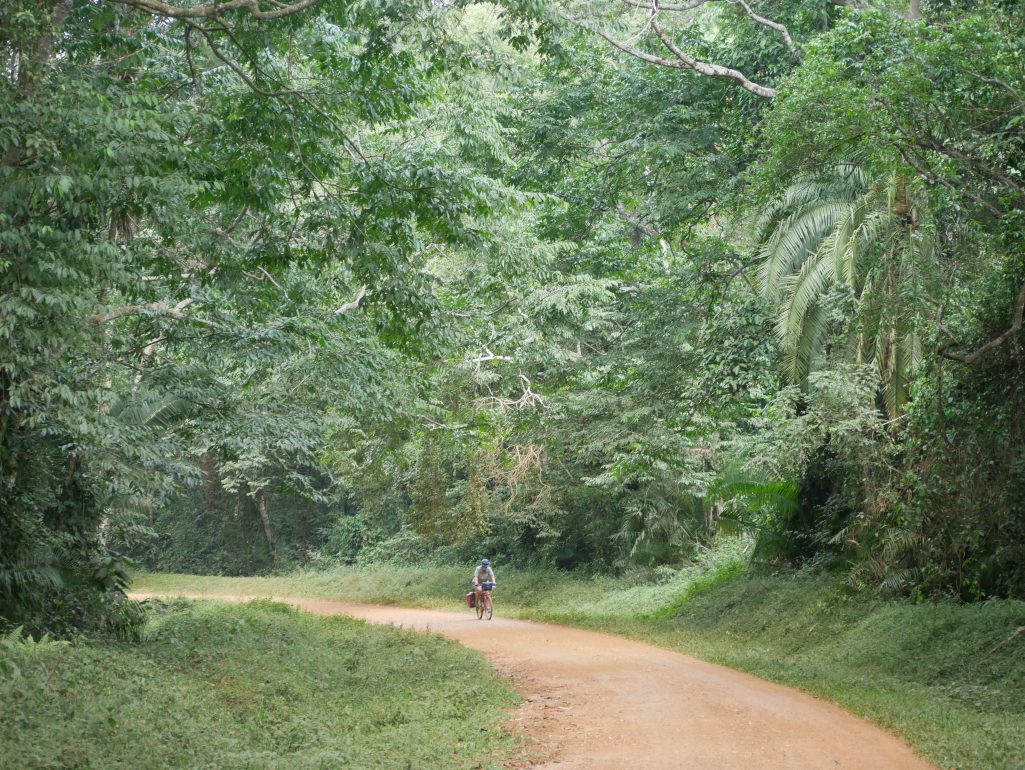
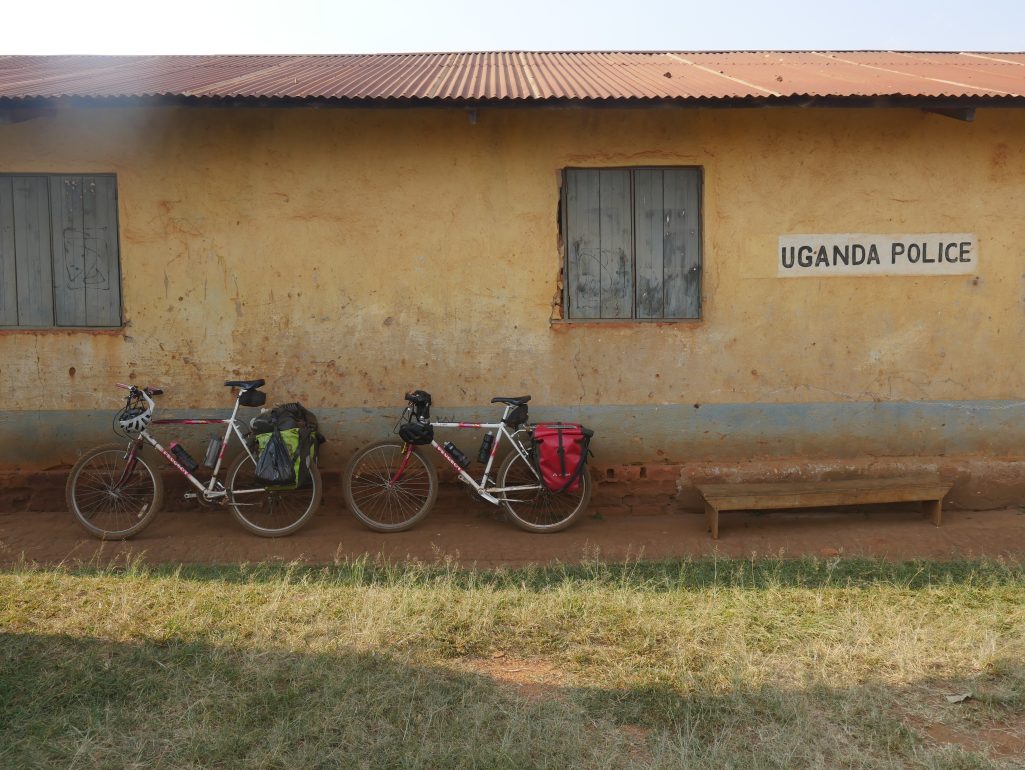
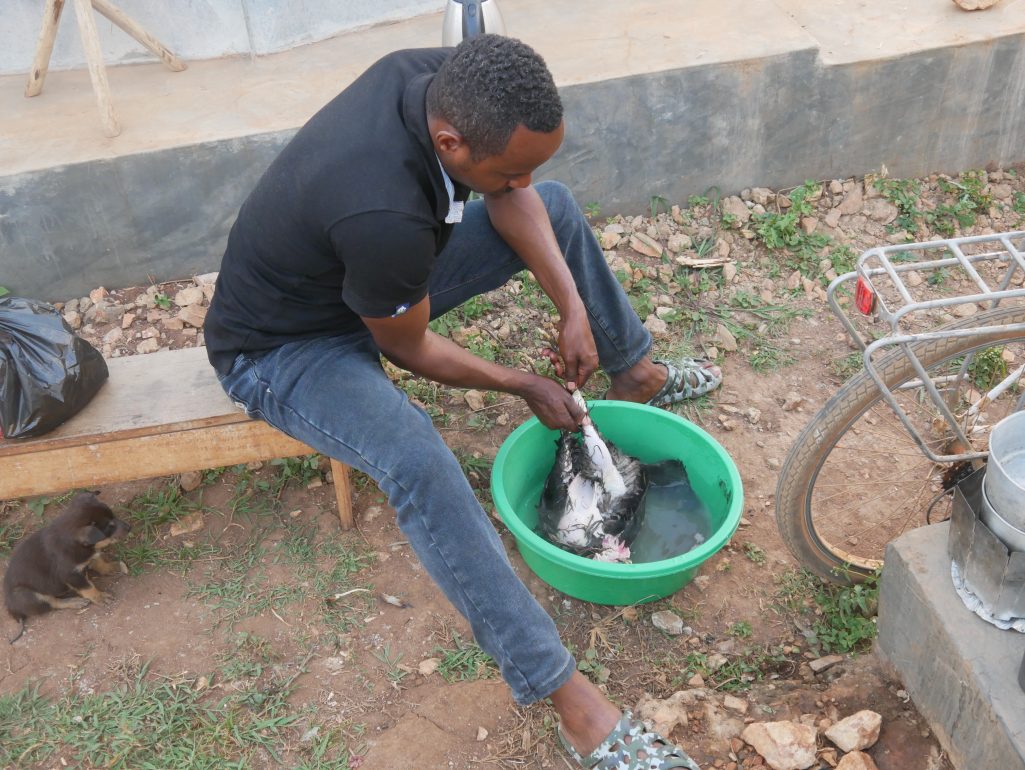
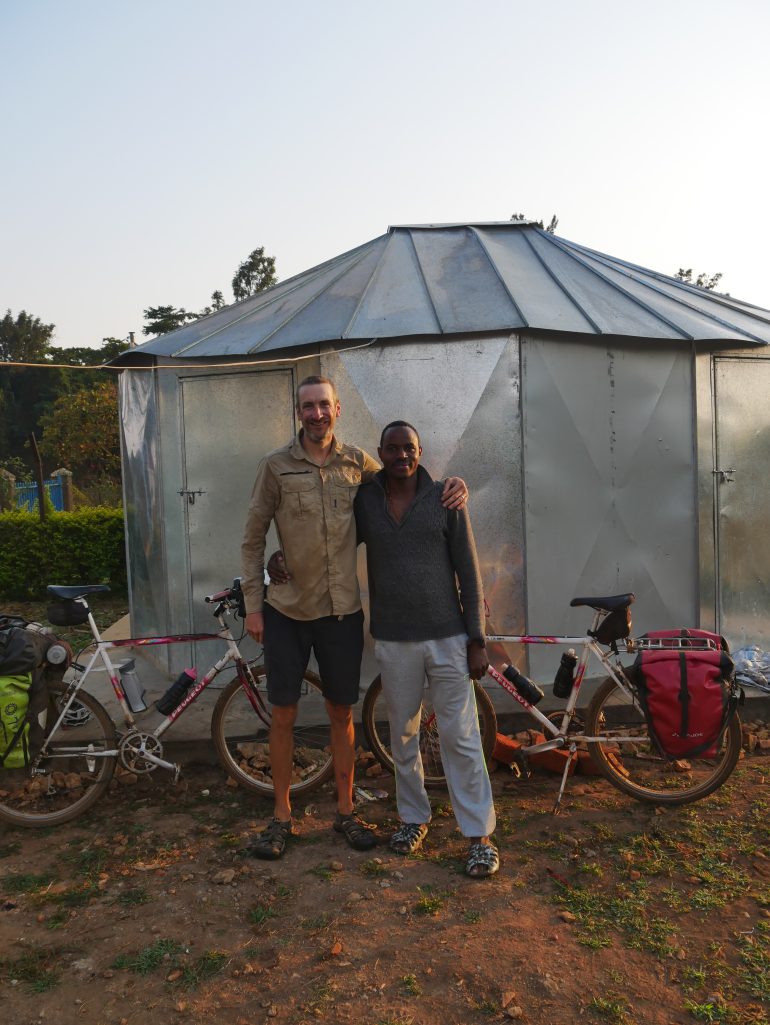
We’d spent the previous three nights in hotels and even found ourselves relaxing in a pool in one, but our night in Kyarusozi was one that will we remember most.
Riding through more tea plantations we drop down into Fort Portal where we meet up with Ailsa, a friend of my brother. She is here to work on a project trying to find a way to reduce the rate of deforestation. It seems an almost impossible task as just about all the cooking is done on charcoal stoves and with an ever increasing population the demand for wood gets greater every year. “It won’t be easy but if we don’t try then the consequences are pretty dire” she tells us. “There are already more landslides when the heavy rains come which is getting worse each year thanks to climate change.”
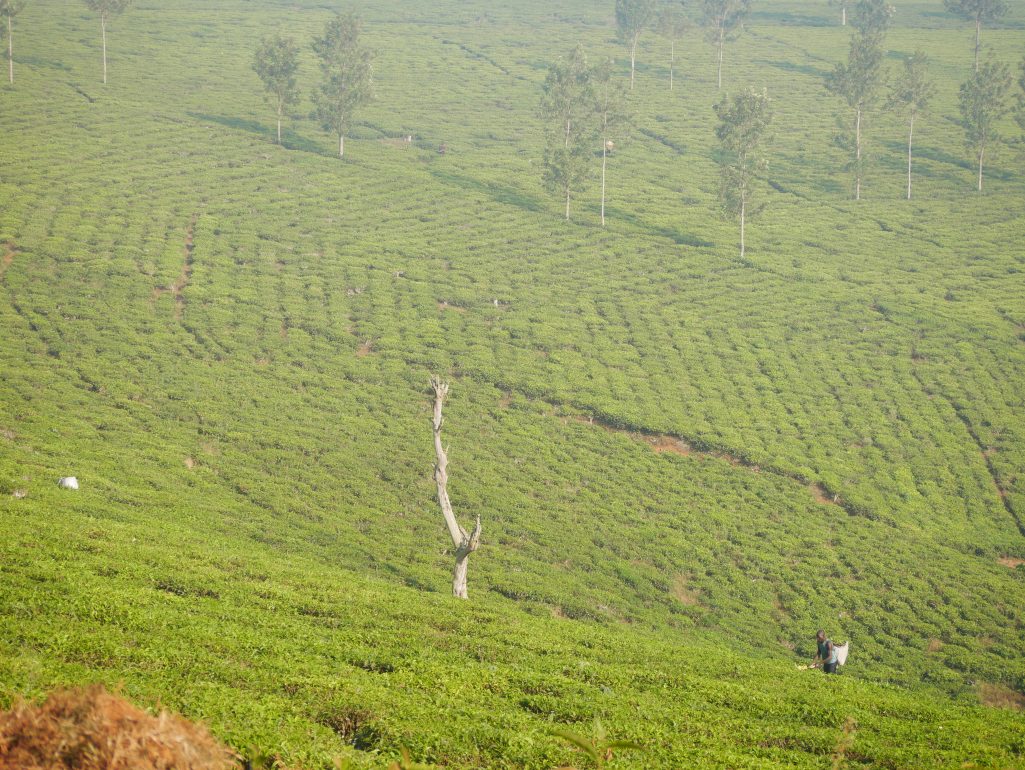
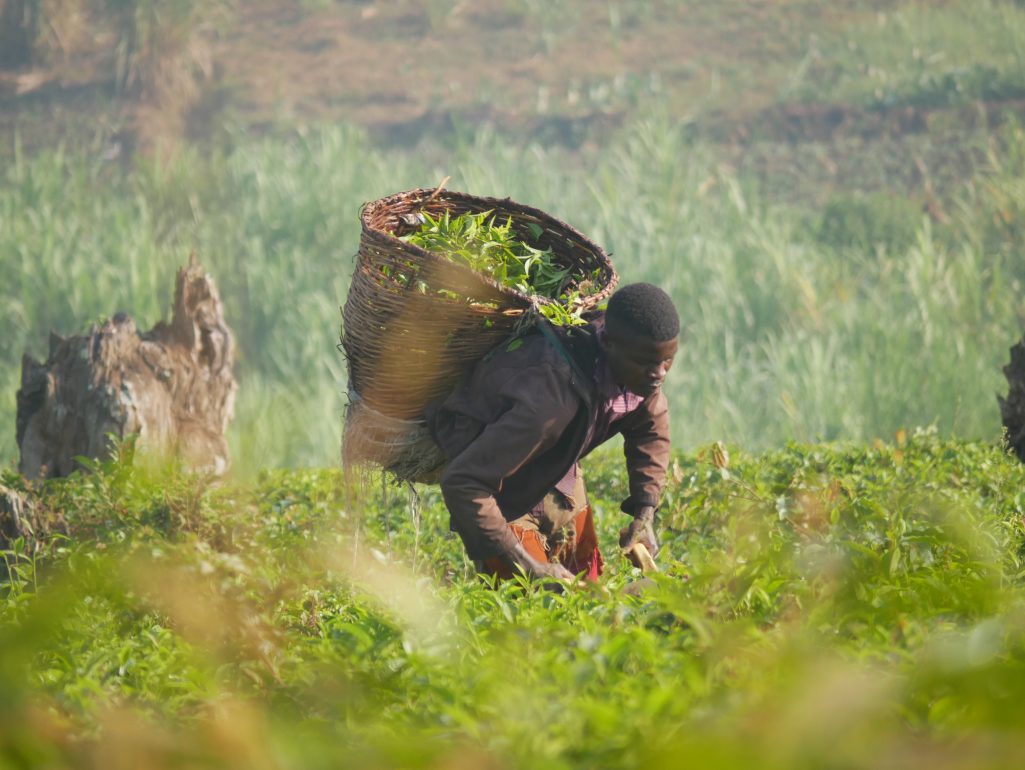
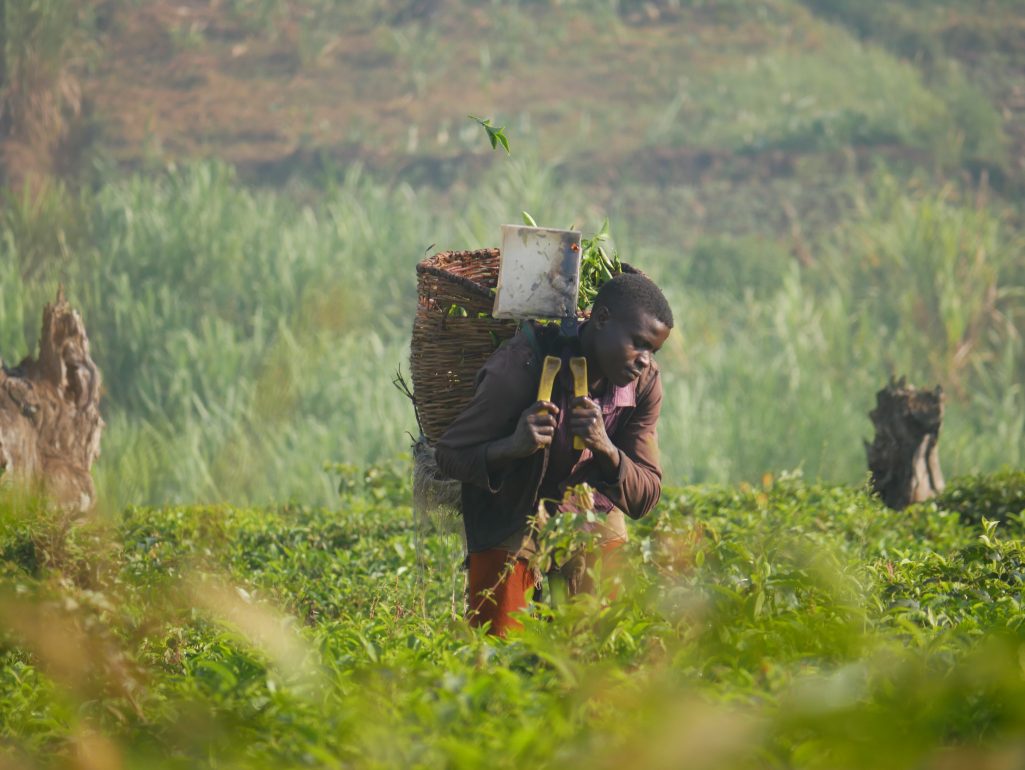
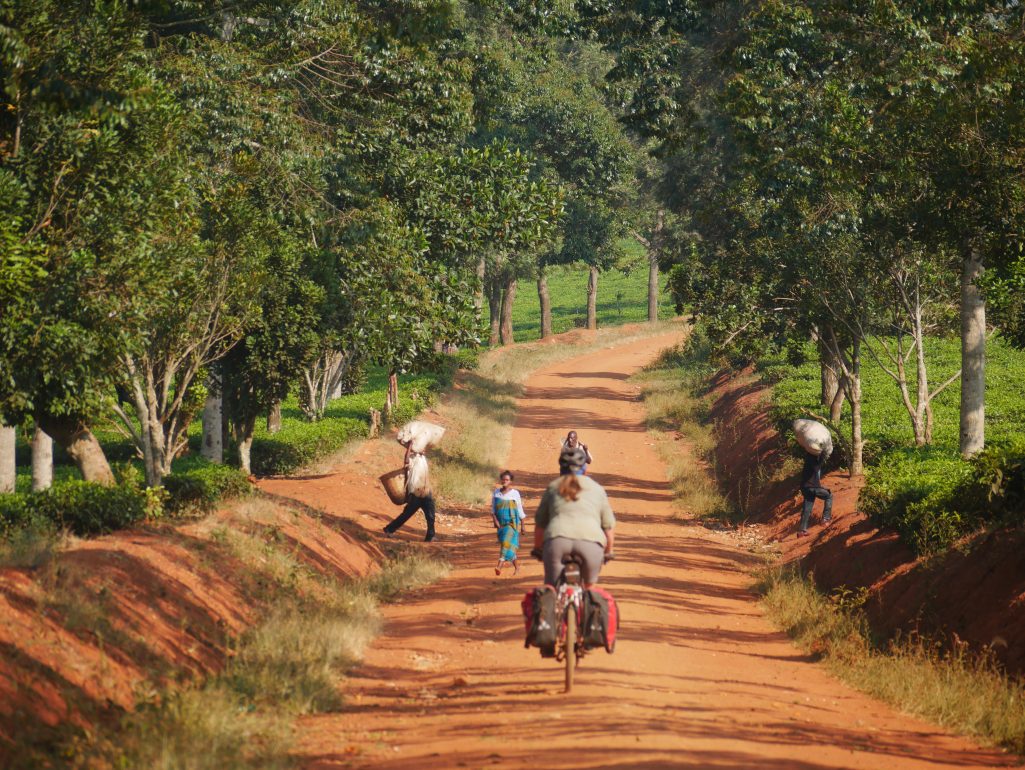
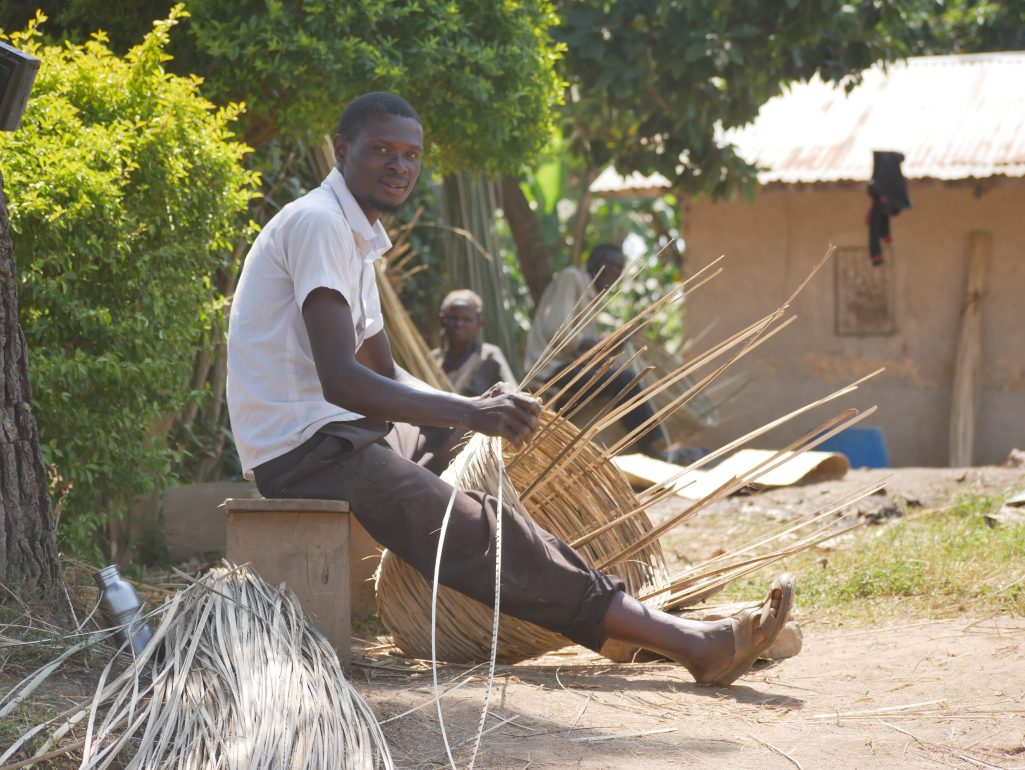
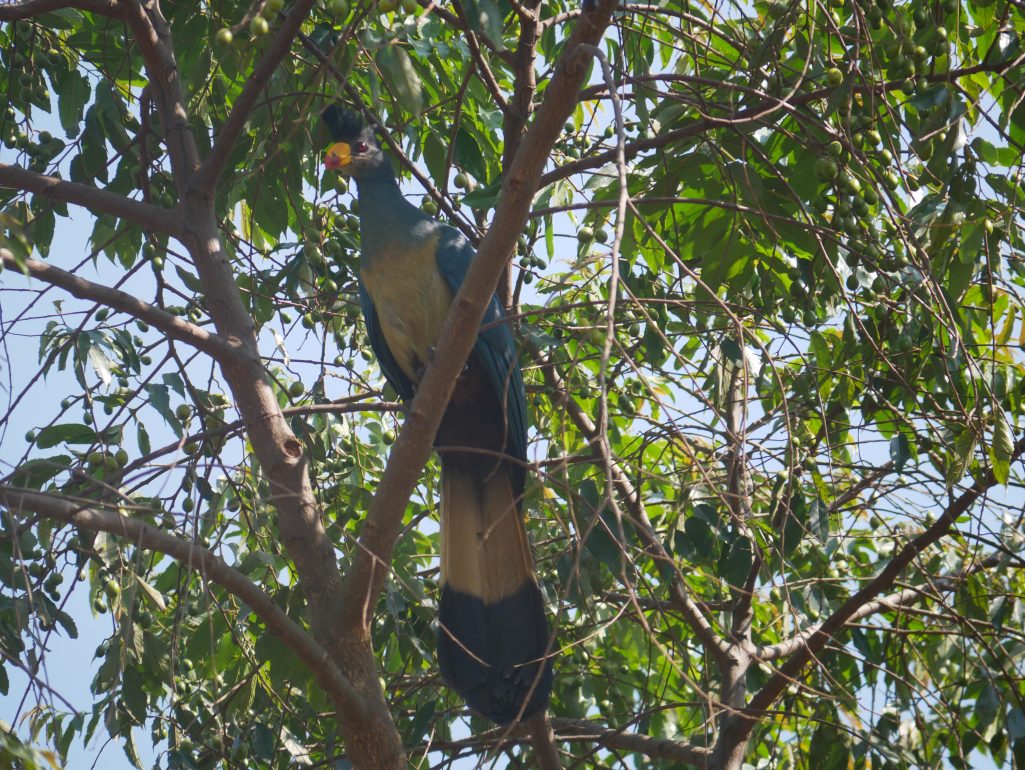
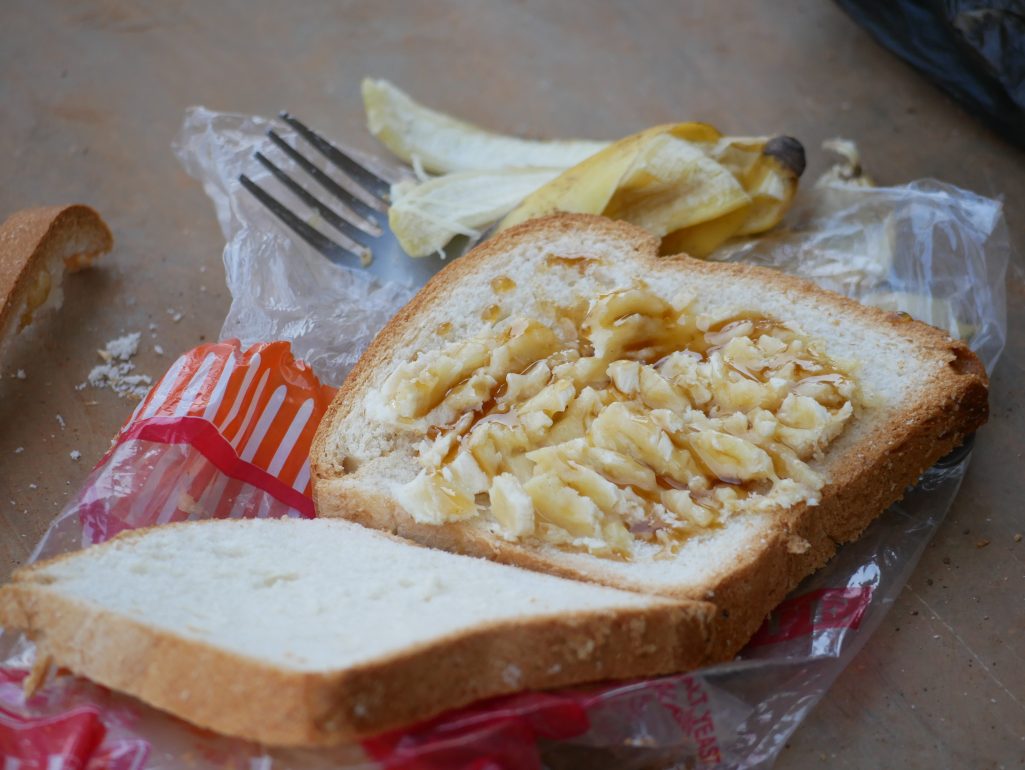

Ailsa is also a keen cyclist so joins us for the ride out of Fort Portal and provides an encyclopaedic knowledge of the flora and fauna that we zoom past. As we begin a climb up towards another patch of woodland she stops and points. “Cranes!” she calls in a hushed voice. On the other side of the small valley are a pair of grey crested cranes, the national bird of Uganda and something we had wanted to spot since we arrived. Their distinctive mohican feathers stand proudly on their heads as they strut around the field foraging for bugs. We stop to watch them for a few minutes before continuing up the climb.
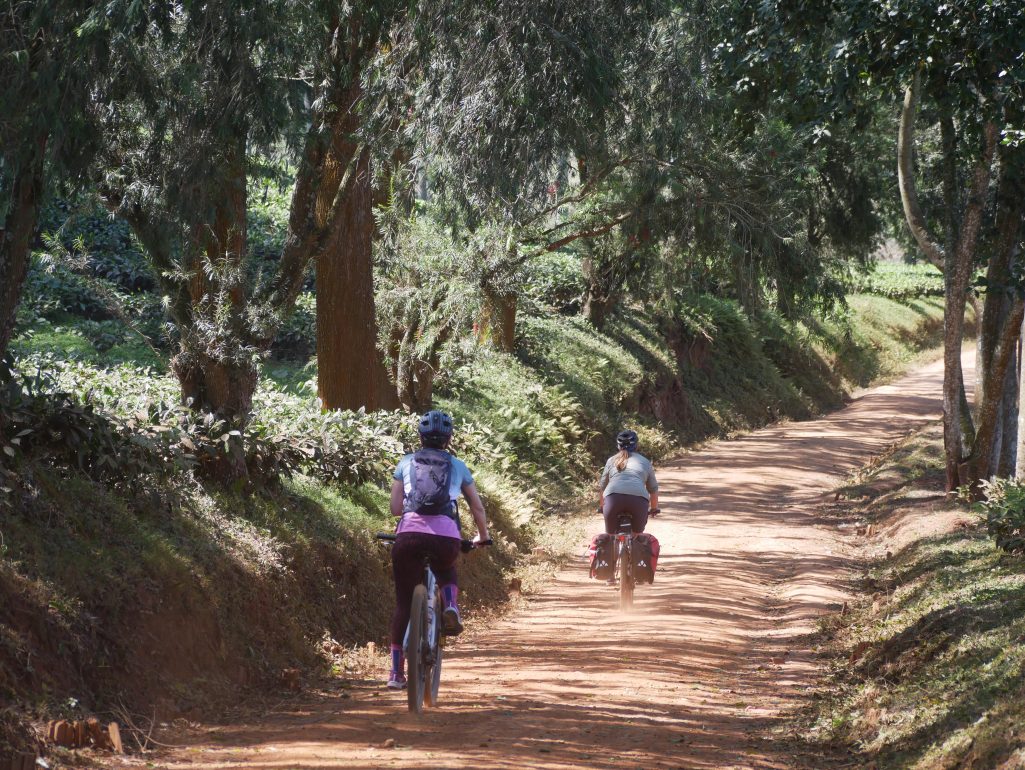
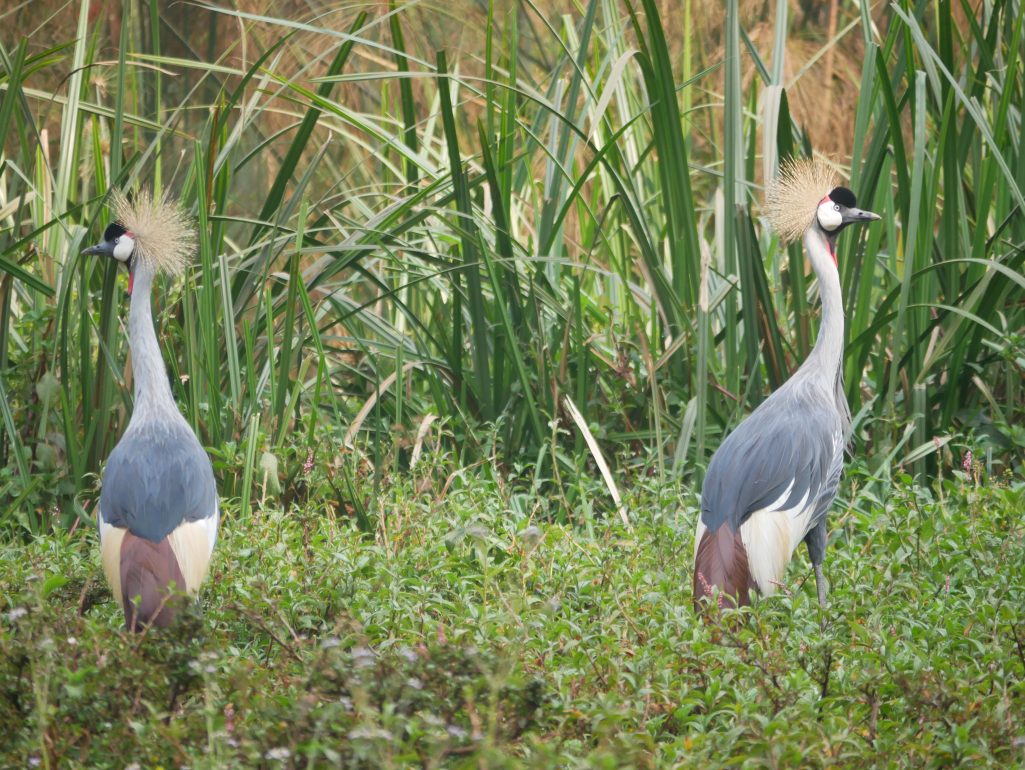
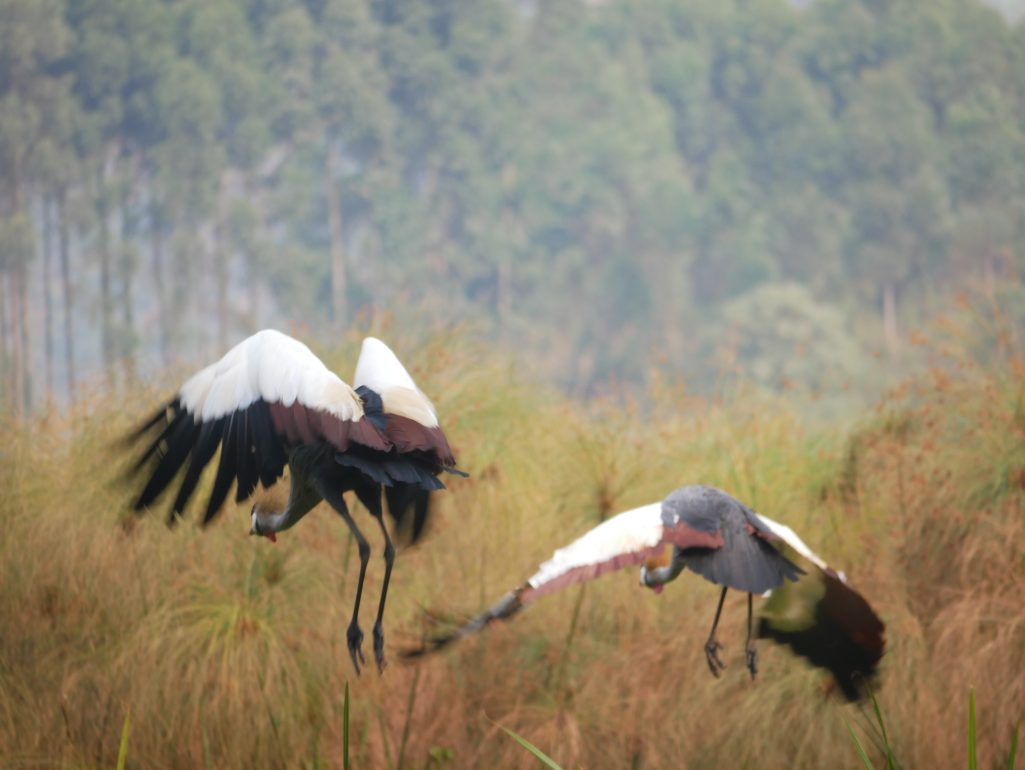
Eventually Ailsa has to turn back to head home so with a fond farewell we go our separate ways and end the day camping above a crater lake to watch the sun setting over our next challenge which now loom large in the west: The Rwenzori Mountains.
